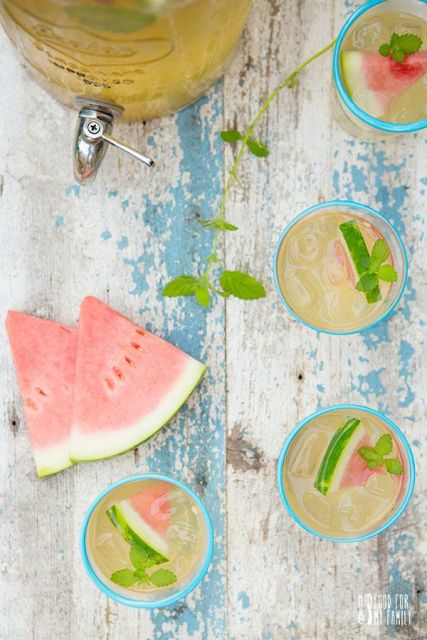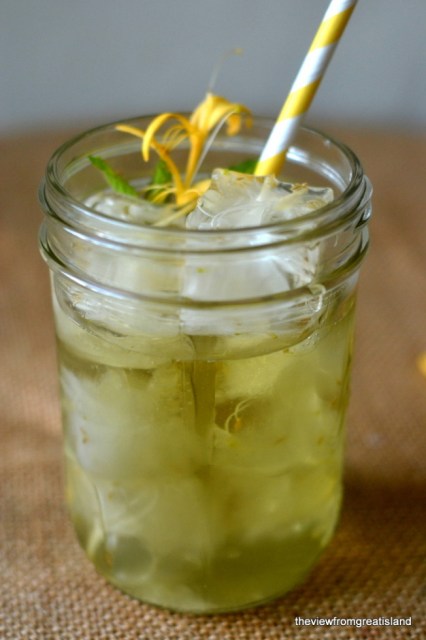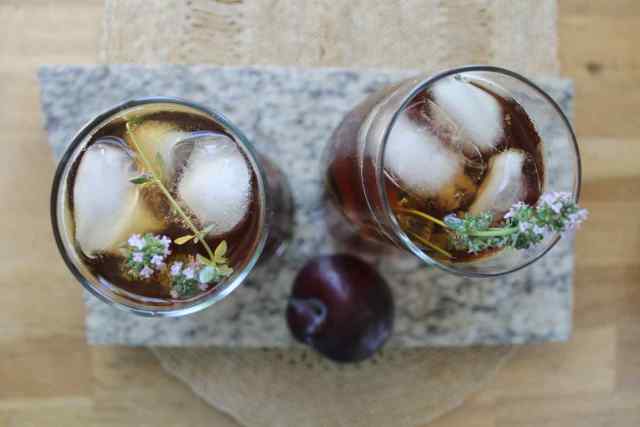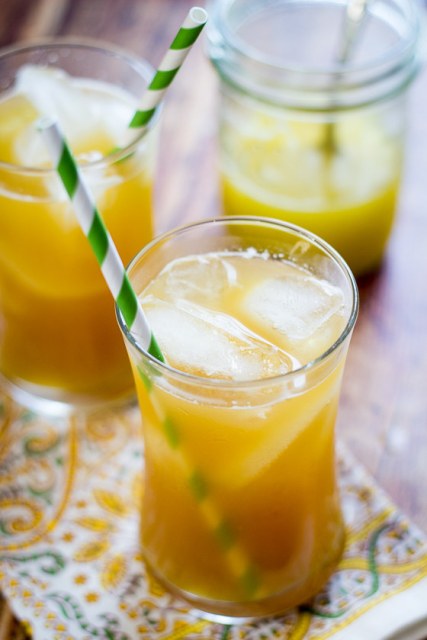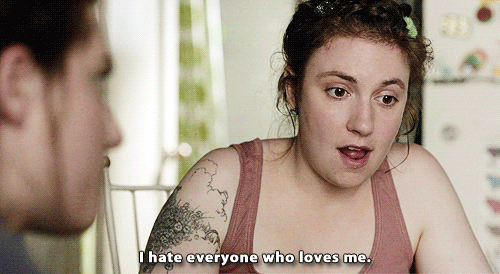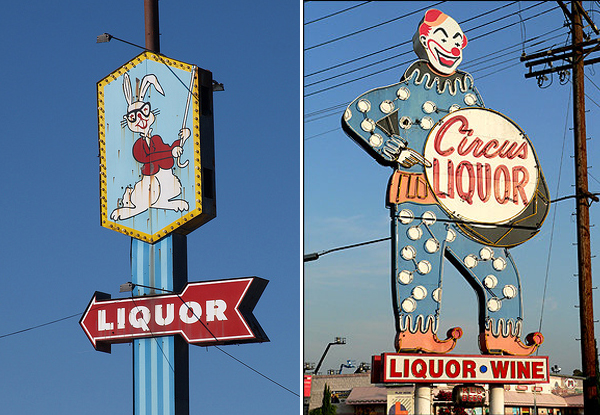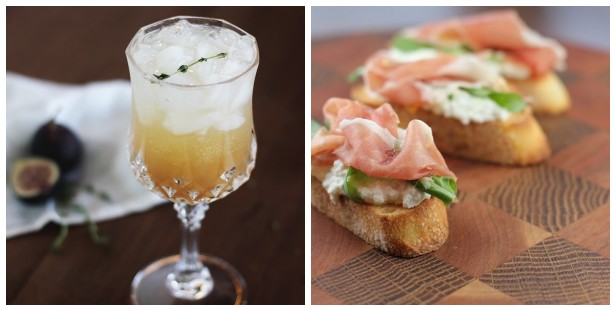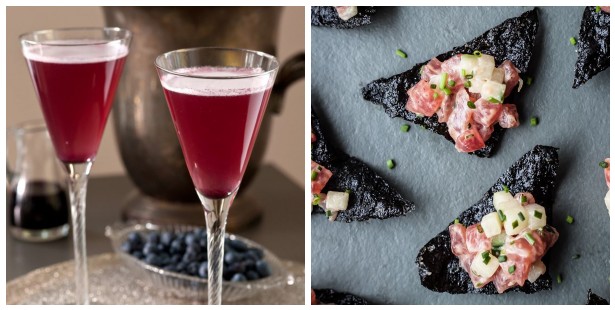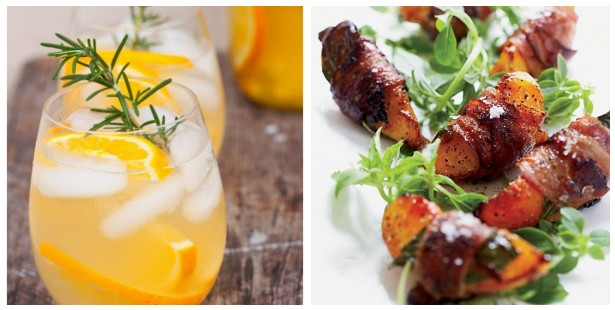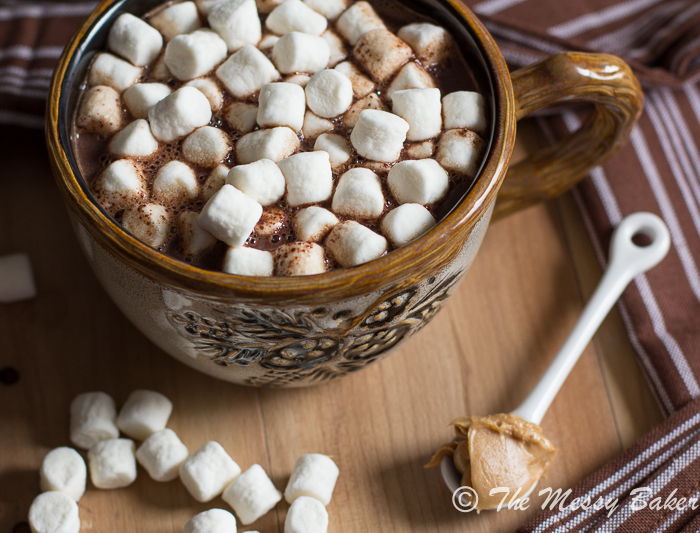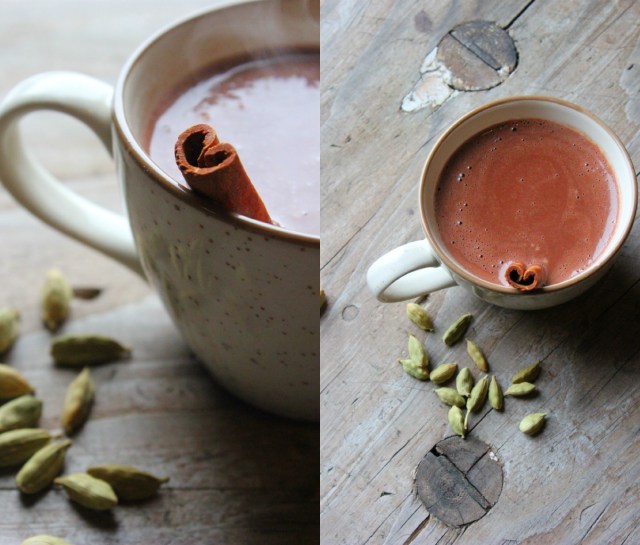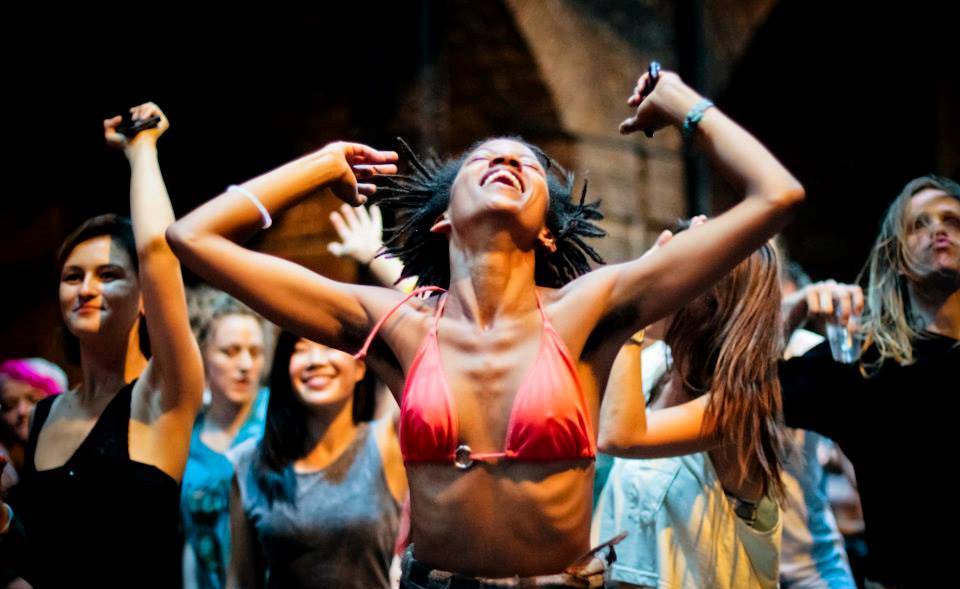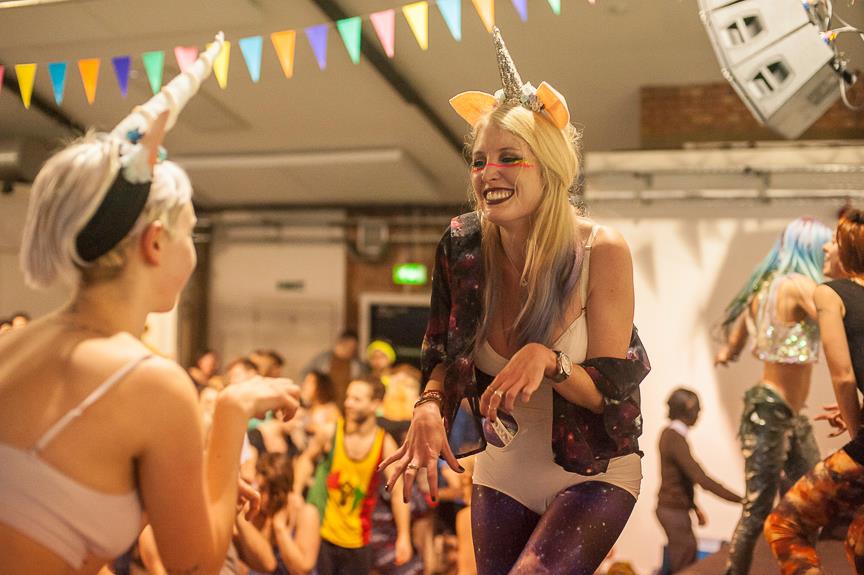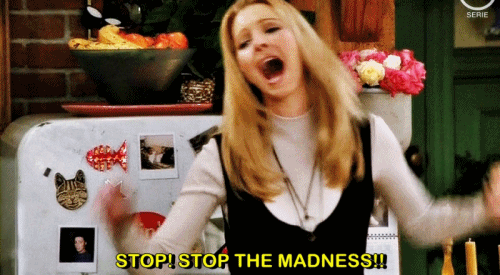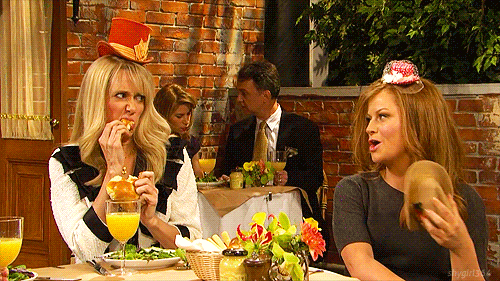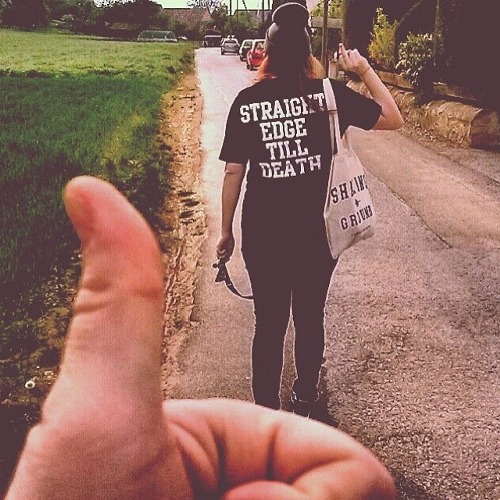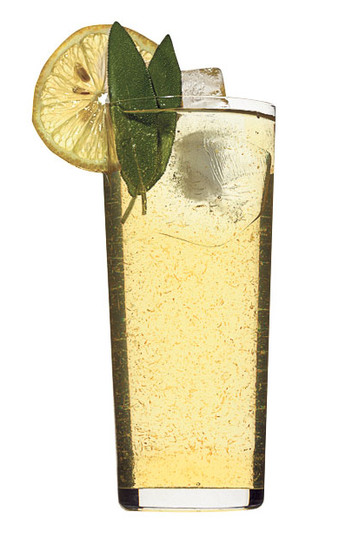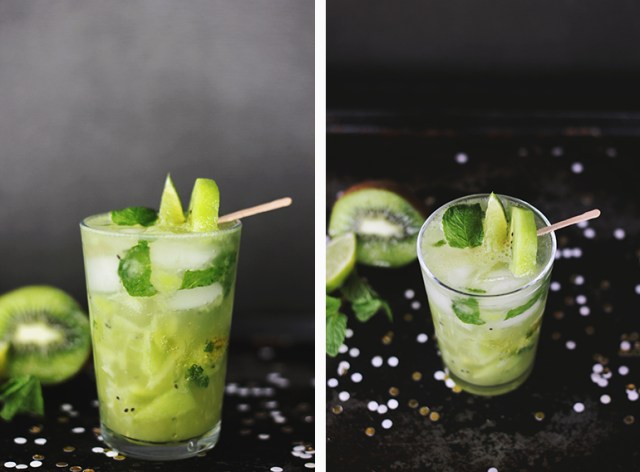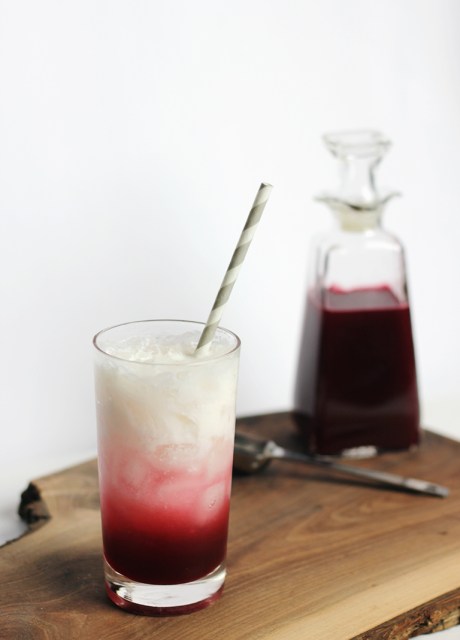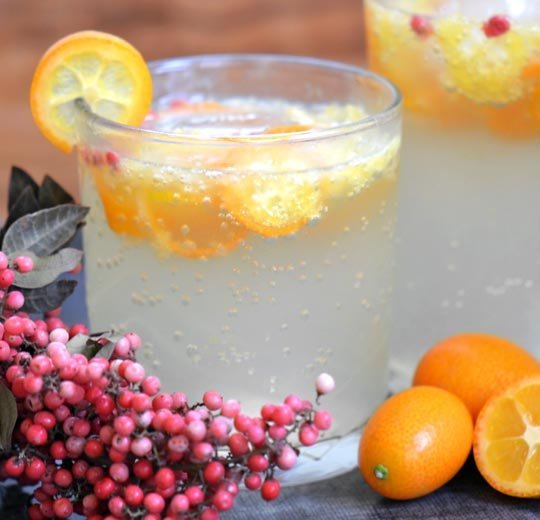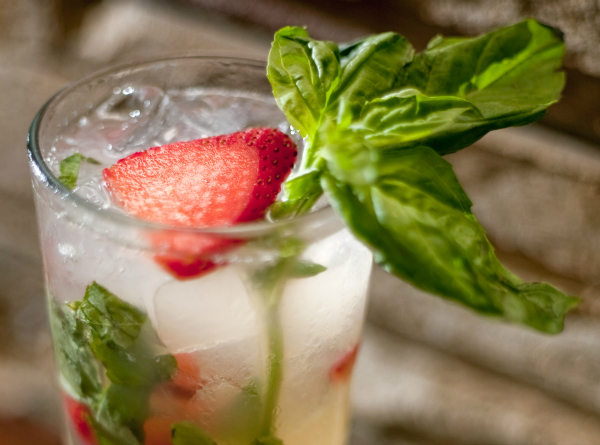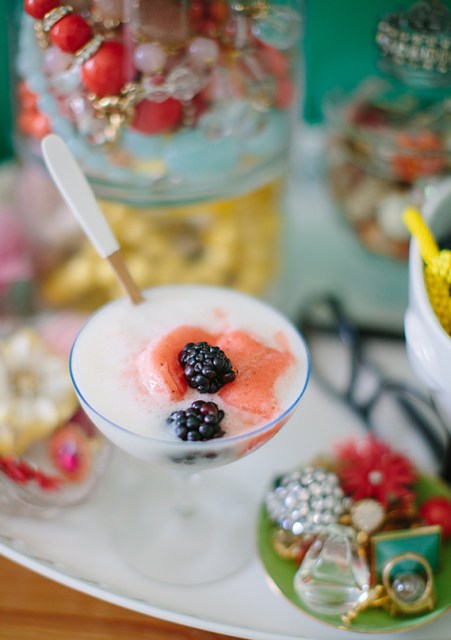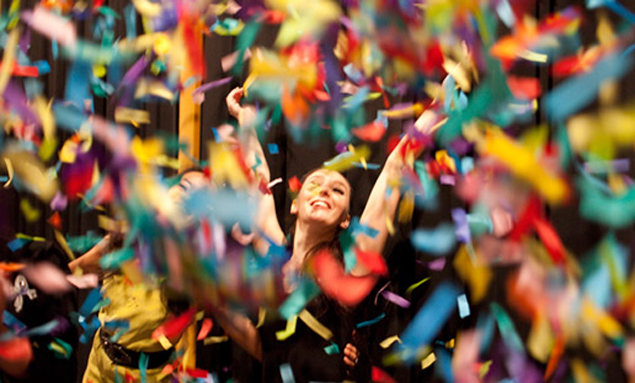Sober in the City: Top 10 Iced Teas for National Iced Tea Month!
You certainly do not have to be sober to enjoy iced tea and celebrate National Iced Tea Month (June). However tea played and continues to play, a crucial role in maintaining my sobriety. Iced tea in particular is as cool and refreshing as some of my favorite alcoholic drinks and also comes in endless varieties from fruity to woody, and calming caffeine-free herbal to super-charged caffeine-loaded matcha. What’s more is that I also have a long history with iced tea. Growing up in the Southwest, my family would make sun-tea. I would light up when I watched our sun-tea pitcher being filled with tea bags and water and would impatiently await my first cup of iced tea as the leaves brewed in the desert heat. At the ripe old age of eight, I would fill a lowball glass with ice and sun-tea and reenact scenes from my family’s favorite soap operas, pretending that the tea was whiskey and that I was a high powered business executive. Looking back, my role play with tea foreshadowed my adult alcohol addiction. But, I’ve come full circle now; tea, rather than alcohol, fills my cup once again. So, with that I say, “Hear, hear!” to iced tea and present to the National Iced Tea Month goddesses 10 delightfully delicious iced teas to try:
1. Strawberry Basil Iced Tea
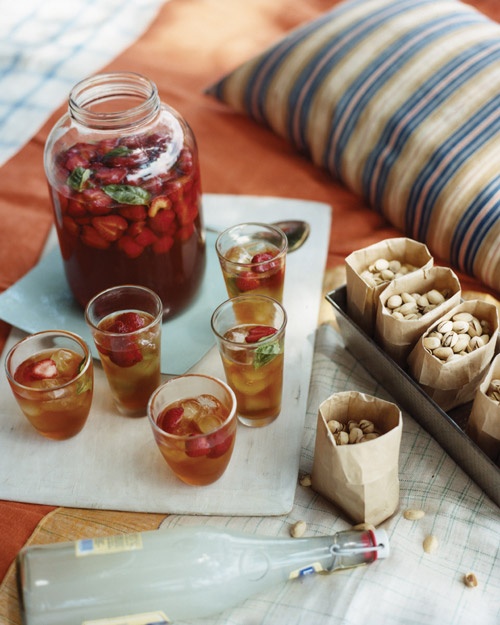
via Martha Stewart
2. Lemon Balm Watermelon Green Iced Tea
3. Matcha Mint Iced Tea
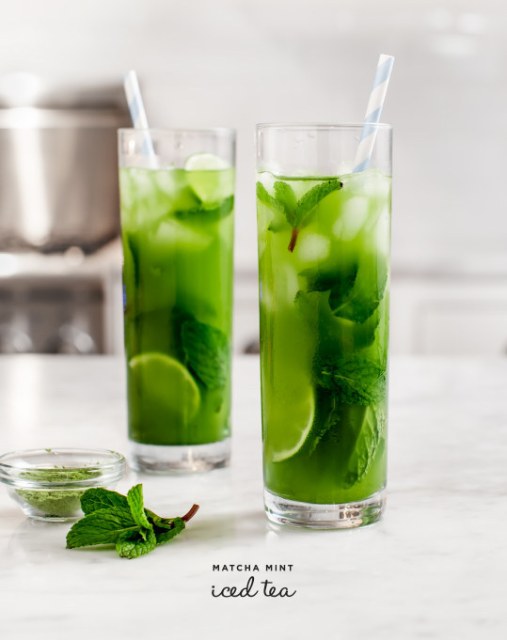
via Love & Lemons
4. Coconut Iced Tea
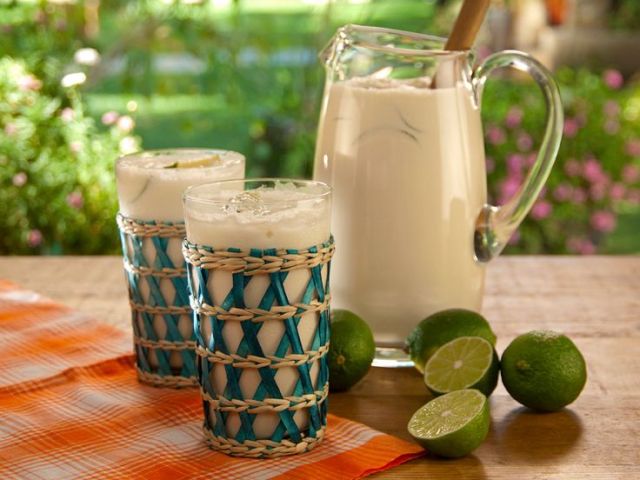
via Food Network
5. Honeysuckle Iced Tea
6. Iced Matcha Latte
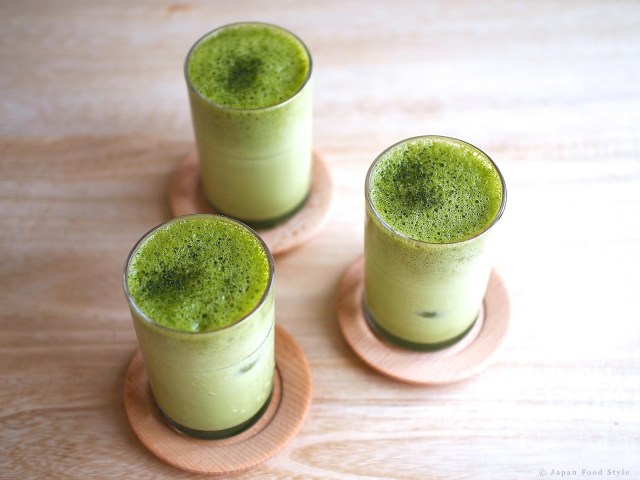
via Japan Food Style
7. Plum Thyme Iced Tea
8. Milk with Chai Tea Ice Cubes

via the kitchn
9. Pineapple Ginger Iced Tea
10. Tropical Fruit Punch Iced Tea
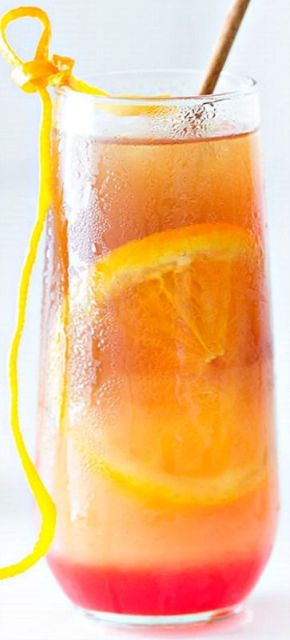
via Bakers Royale
Sober in the City: Adventures in Sober Dating
feature image via Stocksy
Google “Alcoholics Anonymous” + “dating.” The search results can be as anxiety producing as when you Google your cold symptoms. Nestled between dating sites, you’ll find articles describing the difficulties of sober dating (Colin Farrell called sober sex “terrifying”), stories of new romance triggering relapses, and conflicting advice regarding who and when you should date. I wish that I could say that these articles are just clickbait scare tactics. But dating was truly one of the most challenging aspects of my sobriety.
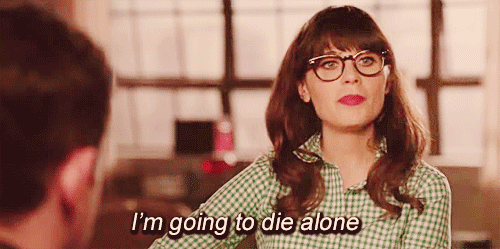
via Elite Daily
For starters, I had been in an addict relationship for 12 years prior to getting sober. As soon as I got sober, my partner, who was still using, dumped me. In addition to not being able to fully accept the idea of never EVER drinking again, I could not wrap my head around having to jump back into the dating scene – sober no less. Where would I find suitable dating candidates? How do I “come out” as sober? It’s bad enough that the queer dating pool is incredibly small. Now, I had to contend with the fact that some people would be averse to dating a sober recovering addict. Even worse is that substance abuse rates are higher in the LGBTQ community than in the mainstream population, making my dating pool ever smaller. Even worse, WORSE is the centrality of bars to LGBTQ culture, making where I could meet people even smaller still!!!
At first, I thought I would meet sober queer women to date in one of my recovery programs, perhaps someone in AA who could relate to my struggles and not lead me astray. I knew of a few sober folks who met their long-term significant others in the program and their relationships stood as powerful examples of supportive, functional sober love. That idea was quickly smashed when my sponsor told me, “Don’t shit where you eat.” I fully understood what they meant by that when I began to regularly witness the aftermath of AA breakups. People in the group took sides and former lovers would no longer feel safe sharing their experiences in a room with their exes.
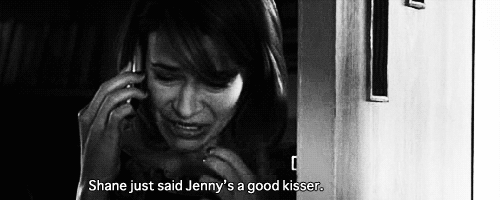
via Autostraddle
Then there were stories of “relapse relationships.” Here’s the gist: Two recovering addicts together can be like gasoline just waiting for a match. One relapses, and the other soon follows. BOOM! Thus, I was told I should avoid dating other addicts at all costs and instead go for a “normie,” someone who has a healthy relationship with alcohol and who would not be down for any hardcore shenanigans. While some people in the program were advising me to stay away from anyone who was a recovering addict, others were advising me to stay away from anyone who drinks even a drop! Basically, this left no one. Yeah, that wasn’t going to work.
So, I decided to start my quest for single gals at the lesbian bar. I rolled into the local lezzie watering hole a few times with my sober crew as backup. I figured if anything went awry, I could easily bounce and never return because I no longer relied on bars as my primary source for entertainment and socializing. I eventually met someone (I’ll call her “Jane”), we exchanged numbers, and made plans for our first date. Jane suggested that we meet at a bar and I was simply too afraid to tell her that I would prefer to meet elsewhere. When I arrived for the date, Jane was waiting and already drinking… and drinking HARD. As the night progressed, Jane kept knockin’ em back and, of course, asking me to keep up. I would offer to order our drinks at the bar to avoid having to come out as sober: “One vodka cran, and one cran and seltzer. No, just cran and seltzer on the second one. No, just cran and seltzer, no vodka. Thanks!”
By the end of our date, I had a gut feeling that this wasn’t going to be a love connection. However, I wanted to give Jane the benefit of the doubt. Many people drink as a means of easing social anxiety, and first dates are terribly anxiety producing. But, one night, soon after our date, Jane sent me a slew of drunk text messages that got increasingly confrontational. Jane was upset that I wasn’t responding to her messages in a timely enough fashion (even though I was at an AA meeting and celebrating the sober anniversary of one of my pals). I sat there reading the messages, not knowing how to respond. I was dead ass sober to the core, and she was trying to define the nature of our relationship via drunk texts. The following day, Jane sent me another round of back-to-back text messages, this time apologizing for her intoxicated badgering. I had to move on…
Several failed dates later, a sober friend decided to play matchmaker and suggested that I date one of her “normie” friends, who I will call “Linda.” Even though Linda and I had absolutely nothing in common, I was still hopeful. After all, I didn’t meet Linda in a bar, she wasn’t in the rooms, and many people meet their significant others through mutual friends. Linda suggested that we connect for a lunch date. She lived in the suburbs, so I borrowed a car to pick her up. As we drove through her town, she asked me to turn into a parking lot, which led to a Wendy’s drive-through. Linda instructed me to pull up to the drive-through window and said, “Order anything you want.” I proceeded to eat my mandarin orange chicken salad overlooking a gas station and cramped in the front seat of the borrowed car. That is the absolute perfect date in some situations. But for a “getting to know you” date, this wasn’t my jam.
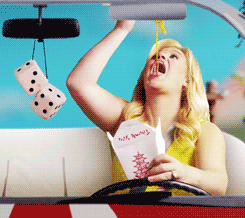
via Teen
Fast forward to my current fiancé. Many more dates after the Wendy’s incident, I met my lovely gal (who I will call “Bestest”) through one of my co-workers. By that time, I had lost hope, but thought Bestest was hot. I figured that I’d least shoot for the hookup and asked her out for dinner. Hours into the date, I realized I was in big trouble: I was already digging this woman A LOT! We went on several subsequent dates and I noticed that she rarely drank and was totally up for alcohol-free adventures. We held hands on the ferris wheel at Coney Island. We danced at an underground nightclub where one of my favorite DJs was spinning old-school soul on vinyl. We attended Yankees games, operas, and drag performances – all sans liquor. And the best part was she never questioned why I didn’t drink! Still, I didn’t have the guts to tell her that I was a recovering addict. I figured she’d run the other way. One day, we were sitting in a coffee shop, mad vibing, and I realized that I had to come out. It went something like this:
Me: I really like you a lot, but I have to come clean about something.
Her: [Look of horror] Okaaaaaaaaaaaaay.
Me: I’m a sober, recovering alcoholic. I do not drink and am working to never drink again in my lifetime.
Her: Oh, whew. I thought it was something else. THANK GOD! I’m totally cool with that. I hate drinking and would only drink on rare occasions because I felt like I had to fit in. Now, I can have a sober partner in crime. Tell me more…
FIVE AND A HALF YEARS LATER: me and my bae:
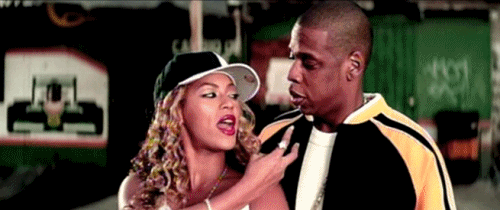
via Hova and B
The point of all this: I really don’t have much advice to give about the “right” way to sober date. I cannot tell you who will be the right match for you (a “normie,” another recovering addict, etc.), when you should start dating after getting sober (a few months, a year, two, three), how you should come out as sober, or how your dates will react to you being a recovering addict. What I can tell you is:
- Expect sober dating to be challenging
- Accept the adventure
- Surround yourself with sober support
- Put your sobriety first
- Be kind to yourself
All the rest will fall into place. And, if you’re doing the work to be the best you can be, you will attract the best of what’s out there!
Sober in the City: Sobriety as a Form of QPOC Empowerment
Feature image via flickr
On Wednesday, December 3, 2014, I worked my usual 8:30am-4:30pm shift at my full-time job, which, in short and to protect my anonymity, involves saving lives. Immediately after work, I rushed downtown and joined a sea of people marching in protest against the Eric Garner decision. With my fist pumped high in the air, tears streamed down my face; I was angry and saddened by the verdict, but grateful for my life and to be surrounded by others engaged in collective action. After marching over 100 New York City blocks in the cold, I took my tired feet home, made a nice hot cup of tea, and blogged about LGBTQ visibility and equality.
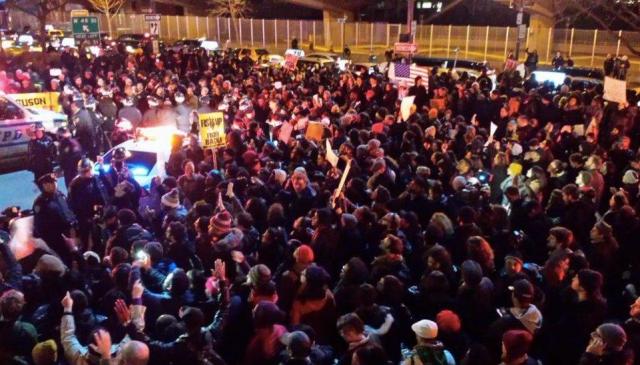
via via Gothamist
This level of service to self and to my community represents the person I am today, the person I want to continue to be, and the person I was before I found the taste for drink. My problem with drinking didn’t start until the end of my second year in graduate school. Prior to that, I had big dreams and had overcome physical abuse, sexual abuse, mental abuse, and poverty to become the first person in my family to attend college, earn a graduate degree, and secure a job at a top academic institution. I was taking steps towards realizing my goals and was a promising young QPOC professional woman. While I remained functional and seemingly successful even during the height of my addiction, I managed to stall my ambition and potential with alcohol. I recklessly spent all of my earnings on partying and got myself into serious debt. I was in an abusive, addict relationship for 12 years and, because I did not have the money or self-esteem to leave it, was stuck in a cycle of depression and self-medication. I passed up career advancement opportunities, ignored an invitation to participate in a leadership conference for women of color in D.C., and declined a full scholarship to study in a doctoral program at an Ivy League university.
Without sounding too much like a conspiracy theorist, my addiction and the resulting ramifications were, in some ways, all part of the system’s plan. The biopsychosocial etiology of addiction requires a multi-modality approach to the understanding and treatment of it, especially in light of new research that continues to reveal that addiction is more than simply a “spiritual malady.” As I mentioned in a previous post, substance abuse impacts LGBTQ individuals at three times the rate of the general population. Discrimination, stress, lack of support networks, and few places to socialize outside of bars have all been identified as factors in the prevalence of addiction in the LGBTQ community. Think Progress reported, “…gay and transgender people turn to tobacco, alcohol, and other substances as a way to cope with the challenges.” This is not a unique phenomenon. A study by Purdue University found that “blacks who feel mistreated and discriminated against are more likely to abuse alcohol and illegal drugs.”
The Center for American Progress notes that alcohol and tobacco companies intentionally exploit the LGBTQ community’s connection with bars and clubs for profit, and research shows that alcohol ads specifically target African Americans and that liquor stores are disproportionately located in predominately African American neighborhoods.
Although African American youth drink less than their counterparts in other racial and ethnic groups, they suffer more serious consequences from alcohol consumption, possibly because, as David Jernigan hypothesizes, “they tend to have less access to health care and substance abuse treatment, live in poorer neighborhoods and are incarcerated more frequently.” This trend of disparate biopsychosocial alcohol-related consequences appears to continue for African Americans and Hispanics into adulthood. Finally, l could write at length about how drug users are complicit in the atrocities of the drug trade, albeit admittedly within the context of current government drug policies. In short, none of the personal or societal ramifications of addiction are merely coincidence and I no longer have to contribute to or be the victim of said ramifications.
I may be an atheist who does not believe that addiction is a spiritual problem, and I may not follow the 12 steps to the letter. But, what I have found to be an integral part of my solution is a renewed belief in my agency and power as a QPOC woman. I will not let substances rob me of my promise. I will not let alcohol numb me to the pain I experience when I am oppressed and discriminated against, nor will I let greedy corporations and corrupt governments profit off of that pain. I want to strive for my goals and attack any obstacles with all of the mental clarity and physical strength available to me in my arsenal. And I relish that I am out in the streets with my community protesting inequality, instead of hiding from it under my sheets with a hangover. I am one more unaltered dangerous mind!
As Johann Hari recently stated in an article that addressed the role of isolation in addiction, “If we can’t connect with each other, we will connect with anything we can find – the whirr of a roulette wheel or the prick of a syringe… So the opposite of addiction is not sobriety. It is human connection.” No longer caving to the forces that marginalize, isolate, and erase QPOC individuals, I am sober and present to engage in self-love and the empowerment of my community.
Sober in the City: Holiday Mocktail and Hors d’oeuvre Pairings
When I first got sober, one of the ways that I romanticized my drinking was to fondly reminisce about my famous holiday wine and cheese parties. These parties would start out sophisticated enough. My friends and I would pick out a bottle (or three) of wine each and prepare some background information about our vino to present to the group. We’d sip, then nibble on cheese, and honey, and figs, and dates. All very grown up, until we got knee deep in drunk and would toss the remaining presentations out the window as we gulped down bottle after bottle singing, “They tried to make me go to rehab, I said no, no, no!” I’d wake up the next day with a pounding headache, surrounded by a cloud of cigarette smoke, mounds of melted brie, and crackers crushed in my furniture. Not so glamorous. The irony of singing along to Amy Winehouse in the midst of my full on addiction provides me with a much clearer perspective. I am grateful to be alive, healthy, and happy — all of this means so much more to me than swigging fancy wine with fancy cheese.
Some people pity me that I cannot drink, especially around the holidays. But, sobriety has made my world so much bigger, not smaller. For example, I no longer default to the routine pairing of food with wine. Instead, I can really think about complex food and drink pairings that are layered and interesting. And, no, I’m not just talking about Ring Dings and Pepsi! Here are 10 holiday mocktail and hors d’oeuvre pairings that will put that predictable wine and cheese to shame:
1. Fig and Thyme Fizz with Homemade Ricotta, Prosciutto, and Arugula Bruschetta
2. Pom Berry Bellini with Tuna Tartare on Nori Chips
3. Asian Pear Sparkler with Fresh Vegan Spring Salad Rolls
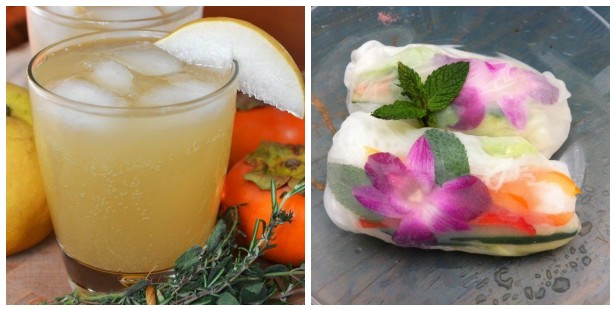
via the kitchn / Sweet Vegan
4. Rose Grapefruit Mocktail with Pistachio Halvah and Sesame Salt Topped Mini Chocolate Tarts
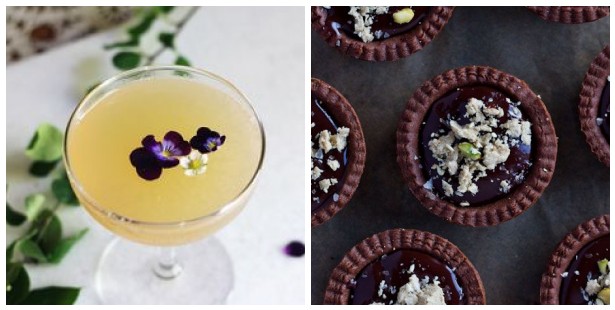
via The Merry Thought / Bon Appetit
5. Fennel Apple Spritzer with Pickled Baby Beets, Herbed Goat Cheese, and Kumquats
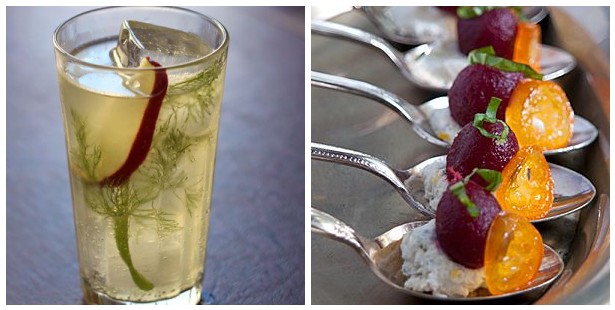
via Saveur / Never Enough Thyme
6. Rhubarb Soda with Citrus-Cured Salmon
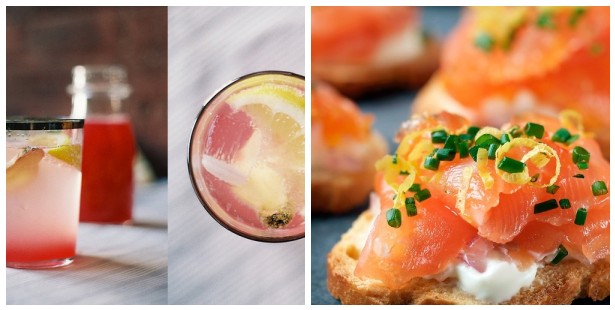
via apt2bbakingco / Martha Stewart
7. Mexican Chocolate Mocktini with Pancake Hors d’Oeuvres
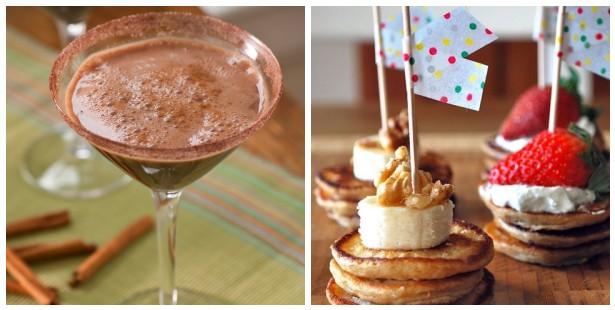
via HGTV / Family Bites
8. Citrus and Rosemary Ice Tea with Pancetta-Wrapped Peaches, Basil, and Aged Balsamic
9. Virgin Tamarind Margarita with Chicken Flautas
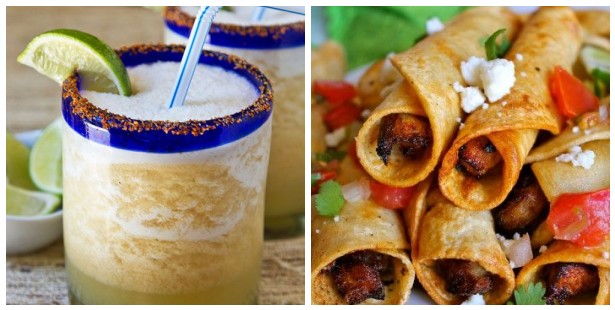
via La Fuji Mama / Food Charlatan
10. Blackberry Spritzers with Tangerine Caprese Kebab
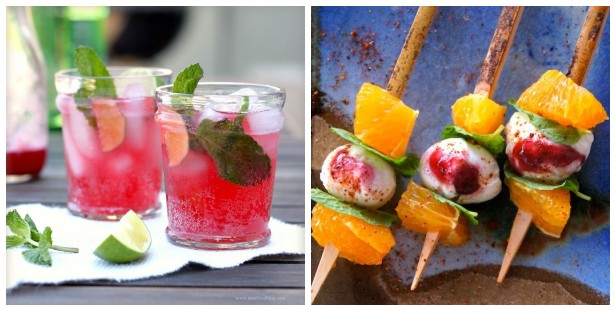
via Taste Food / Food & Wine
Sober in the City: Indulge in These 20 Hot Chocolate Variations
Sometimes, sober folks get short changed when it comes to holiday and party drinks. I can’t tell you how many times I have attended weddings, dinners, and parties where the host(s) carefully curated the cocktail menu and bar, but then only had diet coke and club soda to offer guests who don’t imbibe. Whamp whamp whamp whaaaa. That’s why I go the extra mile (when I have the time and money) to whip up some creative mocktails for my guests or to bring along with me to parties. One of my cold weather comfort favs is hot chocolate. The holiday season is the perfect time to indulge in decedent non-alcoholic hot chocolate concoctions that will put your co-workers’ spiked eggnog to shame. Here are 20 to try:
1. Salted Caramel Hot Chocolate
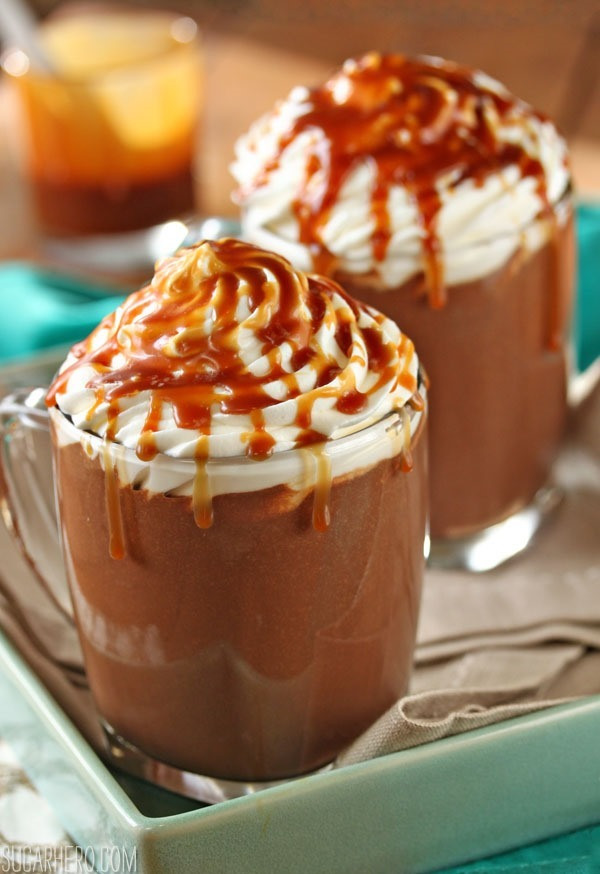
via Sugar Hero
2. Peppermint Hot White Chocolate
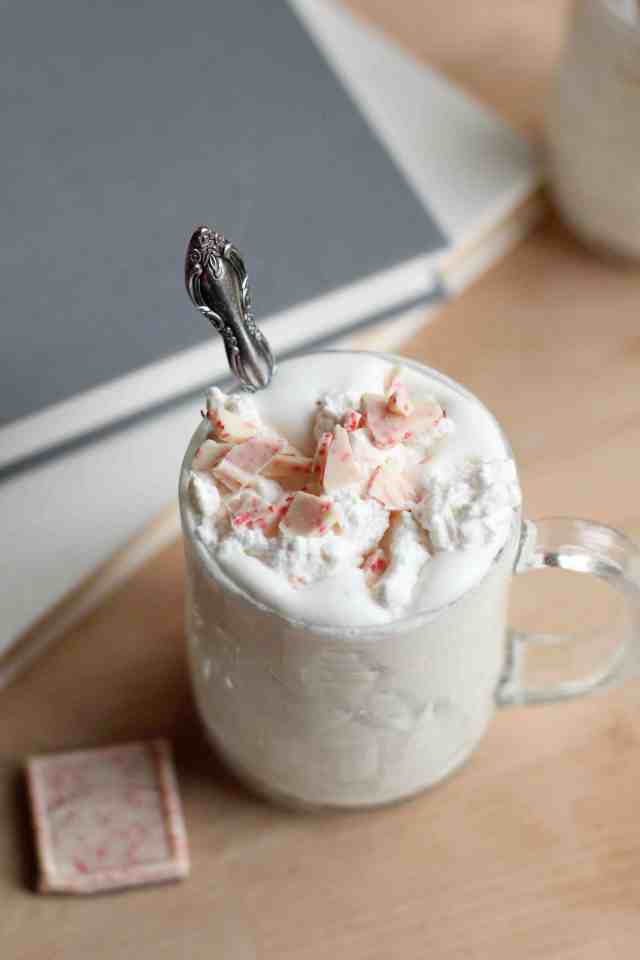
via Jessie Next Door
3. Honeyed Hot Cocoa
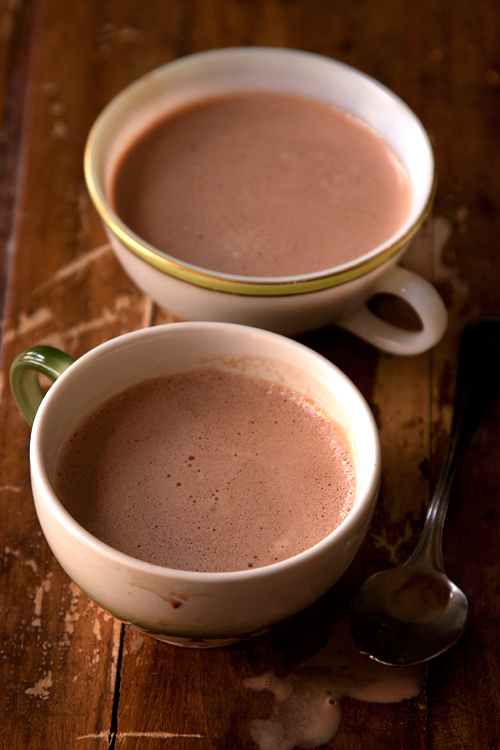
via Saveur
4. Agasajo-Style Hot Chocolate w/Rosewater & Chiles
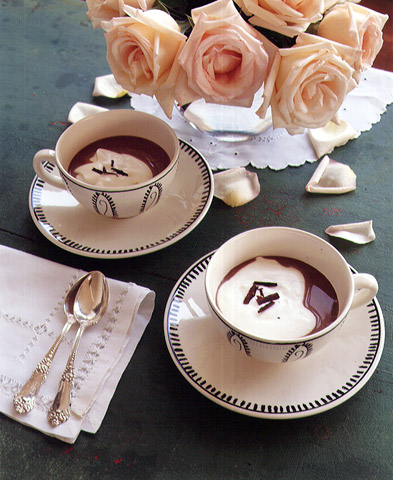
via Saveur
5. Dark Hot Chocolate Peppermint Shots
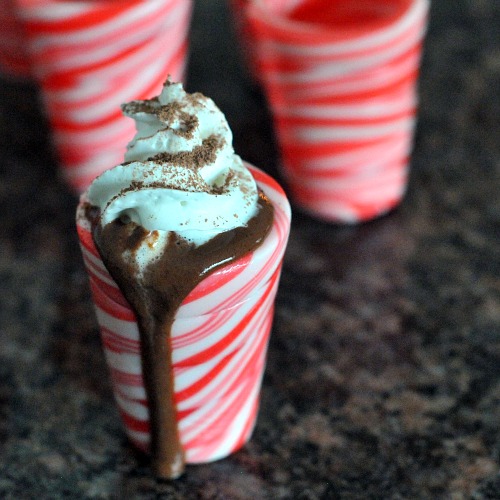
via spabettie
6. Coconut S’mores Hot Chocolate
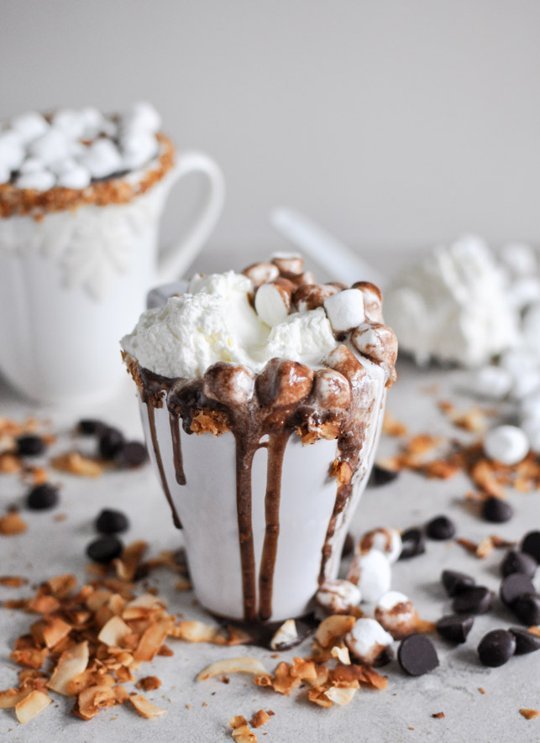
via the kitchn
7. Macha Hot Chocolate
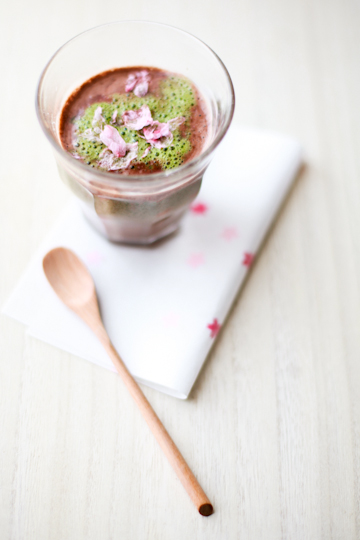
via She Who Eats
8. Vegan Cinnamon Hot Chocolate

via House Vegan
9. Milk Chocolate Peanut Butter Hot Chocolate
10. Red Velvet Hot Chocolate w/Cream Cheese Whipped Cream
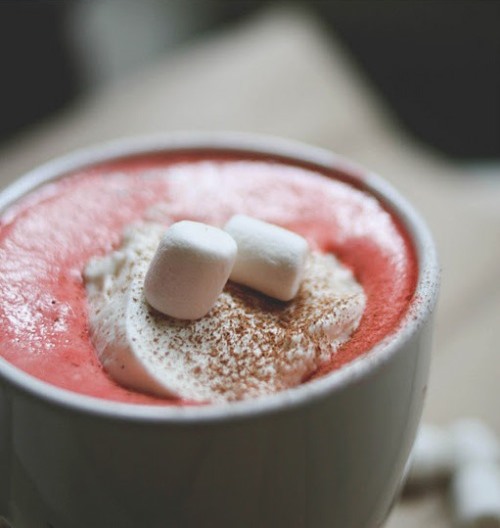
via Une-Deux Senses
11. Rosemary Hot White Chocolate
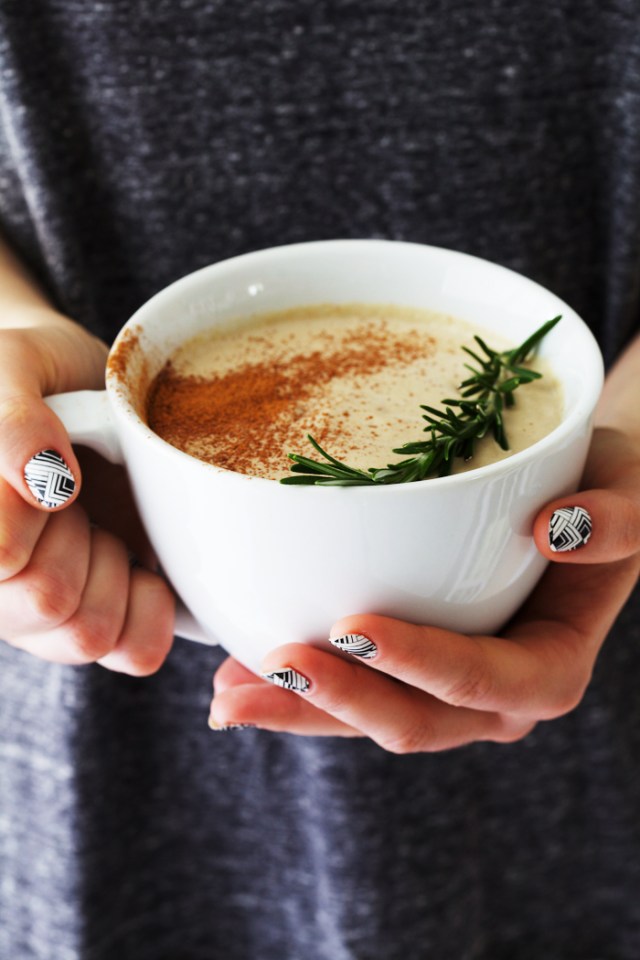
via Golubka Kitchen
12. Earl Grey Hot Chocolate
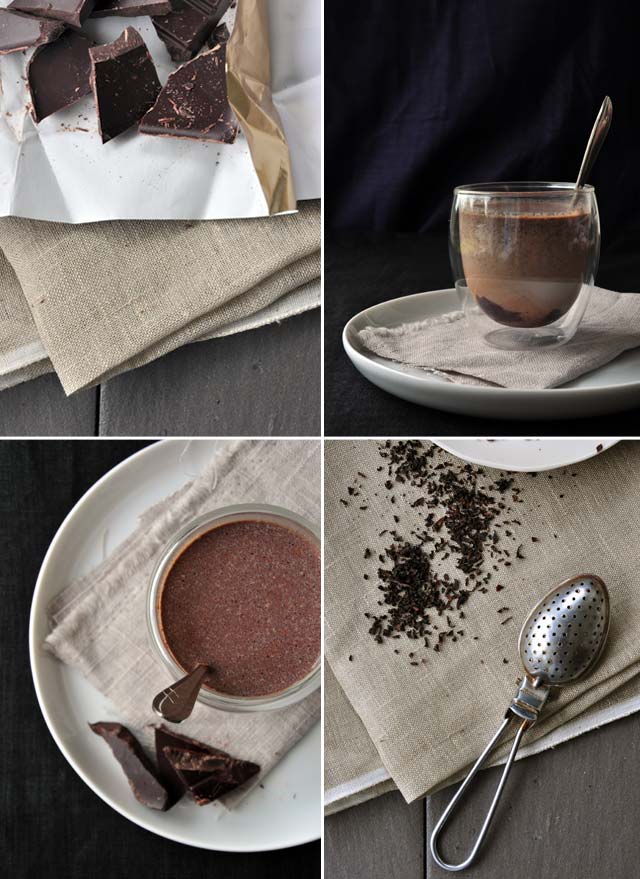
via Our Kitchen
13. Almond Milk Hot Chocolate w/Chili
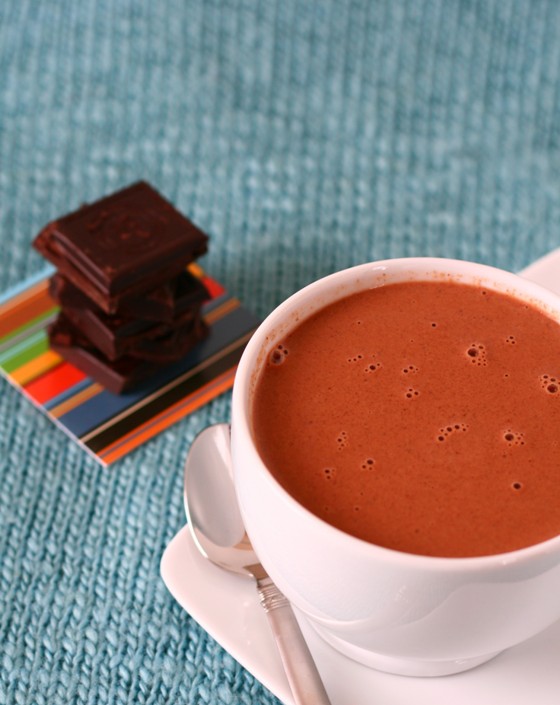
via Veggie Belly
14. Cardamom & Orange Blossom Infused Hot Chocolate
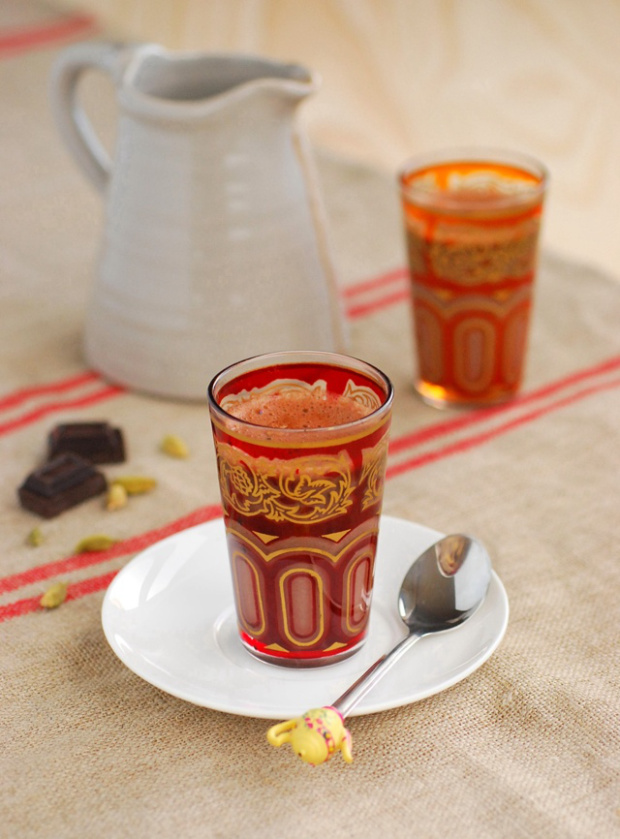
via Pease Pudding
15. Lavender Hot Chocolate
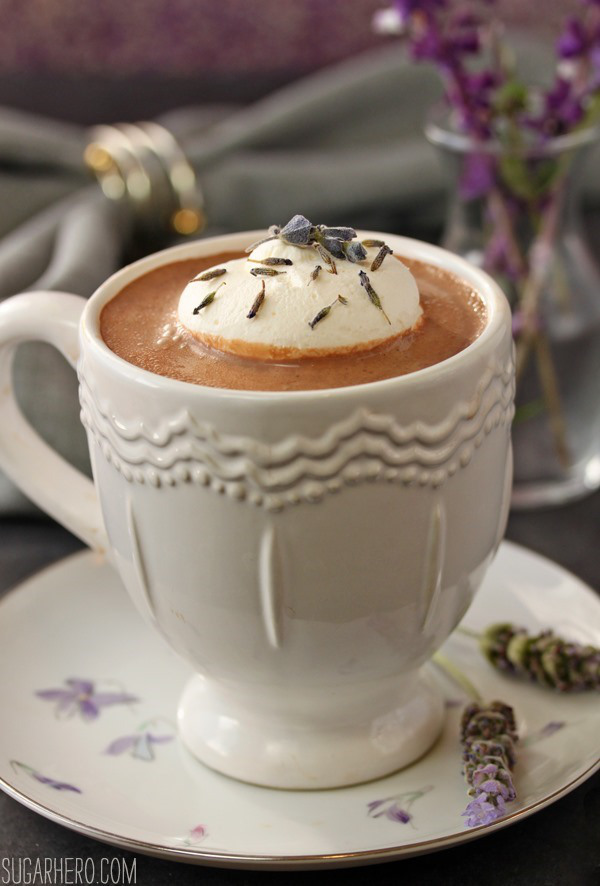
via Sugar Hero
16. Chai Spiced Hot Chocolate
17. Hot Chocolate Peppermint Ice Cream Floats (omit rum)
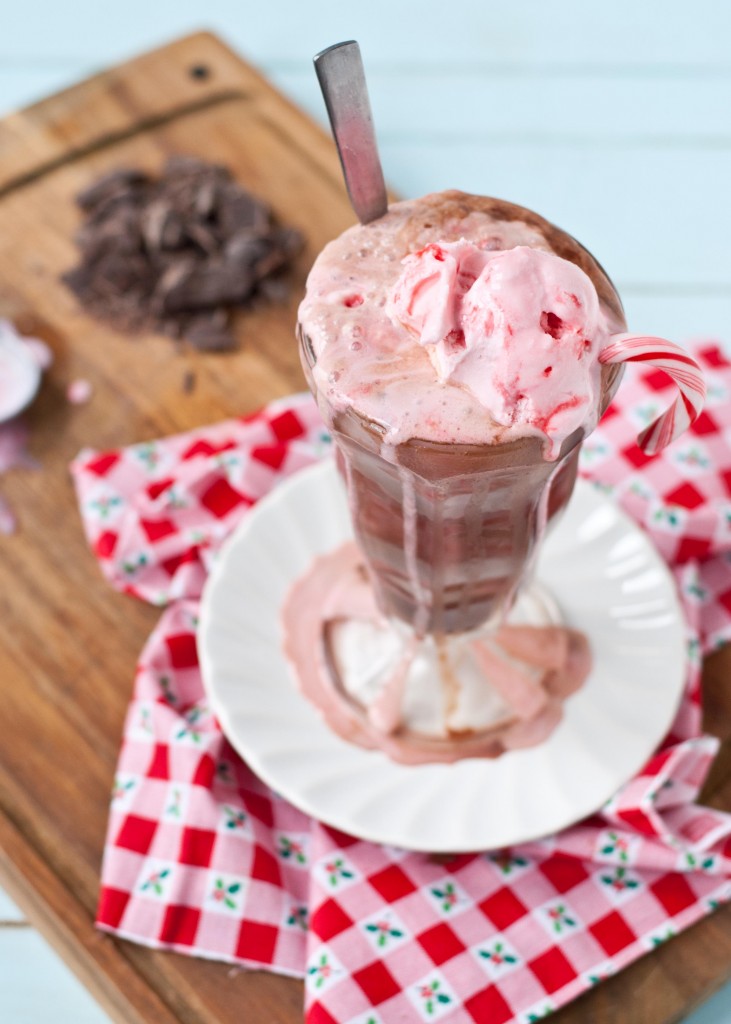
via Neighbor Food
18. Strawberry Hot Chocolate
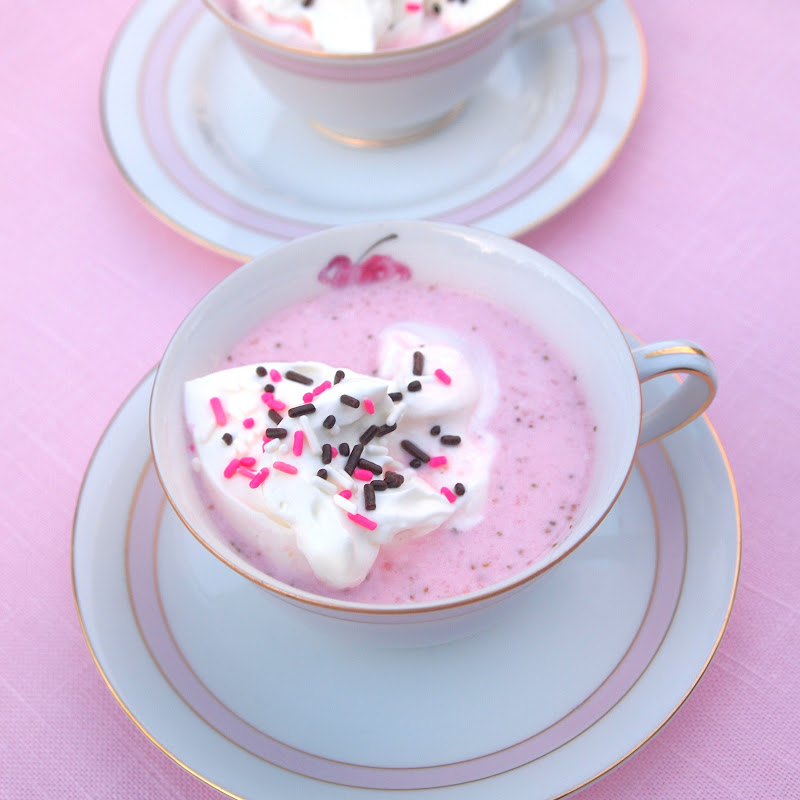
via The Alchemist
19. Spicy Hot Chocolate Mocha
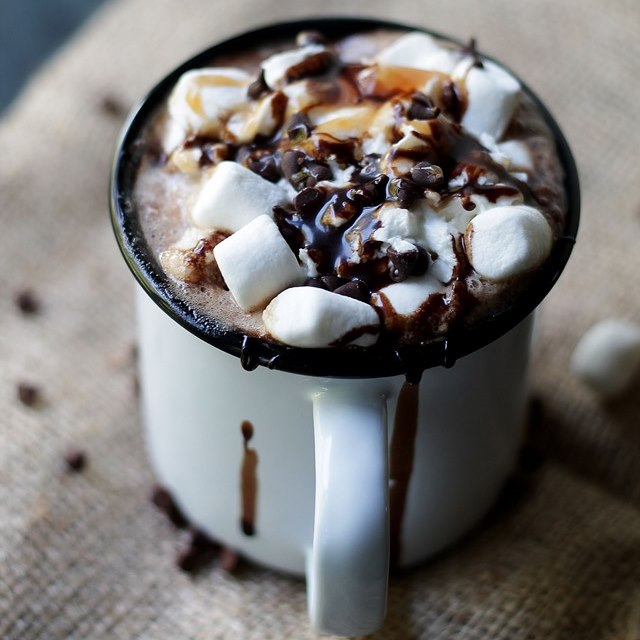
via Diet Hood
20. Hot Chocolate Truffle Bombs w/Peppermint Swirl Marshmallows

via Sugar Hero
Sober in the City: A Feminist Walks into AA
Feature Image via Time
AA saved my life. There is no disputing that fact. However, AA employs practices and ideologies that are not congruent with my personal, political, or philosophical beliefs — practices and ideologies that I wasn’t aware of until I joined the group out of desperation. But, I learned early on in AA that you do not question the AA hegemony, so I kept my head down and counted my days. As soon as my alcohol cravings subsided and I had a few years of solid sobriety, I decided to leave AA and seek treatment and spaces that were more in line with my core beliefs.
Being an AA defector who speaks out about why the program is not a “one size fits all” solution is challenging because, according to AA doctrine, addiction is a moral failing and if AA doesn’t work for you, then there is something wrong with you and not the program itself.
For much of the past 50 years or so, voicing any serious skepticism toward Alcoholics Anonymous or any other 12-step program was sacrilege — the equivalent, in polite company, of questioning the virtue of American mothers or the patriotism of our troops. If your problem was drink, AA was the answer; if drugs, Narcotics Anonymous. And if those programs didn’t work, it was your fault: You weren’t “working the steps.” The only alternative, as the 12-step slogan has it, was “jails, institutions, or death.” – Maia Szalavitz
This is what most of my clients hear: Follow us or you will fail. If you do not recover, you are a dishonest and unfortunate idiot, and you were born a dishonest and unfortunate idiot. You will die painfully, full of shame for your innate inability to be honest with yourself. Even worse, if you are mentally and emotionally ill (which is highly probable), you will only recover if you follow our path completely and do not rock the boat. – Laura Tomkins
As a QPOC, an atheist, a feminist, and an advocate for social justice, I have been told my entire life not to rock the boat. From the moment we enter this world, society begins programming us to accept and internalize sexism, racism, homophobia, transphobia, fat phobia, nationalism, and a number of other phobias and isms that are deeply ingrained in our culture. Society expects me to endure a wide range of harassment, violence, oppression, and inequality while also keeping small and silent, lest I be labeled “an angry black woman,” “a man hating feminist,” “unpatriotic,” “a hypersensitive dyke,” or, in the case of AA, “a resentful, unhappy know-it-all.” When I was molested by my stepfather, my brother asked me to keep quiet so that my experience didn’t upset the rest of my family. When strange men on the streets “holla” at me, I am told to either accept it as a compliment or ignore it and not take it so seriously. When a co-worker at one of my first jobs called me into his office and offered to turn me straight, I had to make the decision of reporting him or keeping my job. When I call out blatant racism or racial microaggressions, I am told to stop overanalyzing everything or asked to provide proof of racial inequality. And, when I pointed out the sexist and misogynous passages in the Big Book (the complete text of AA), I was advised to focus on the positive aspects of AA and stop “harping on” the negative because, after all, my negative thinking is what made me an alcoholic. Minorities are reminded at every turn that we need to stay in our place and not question the rules.
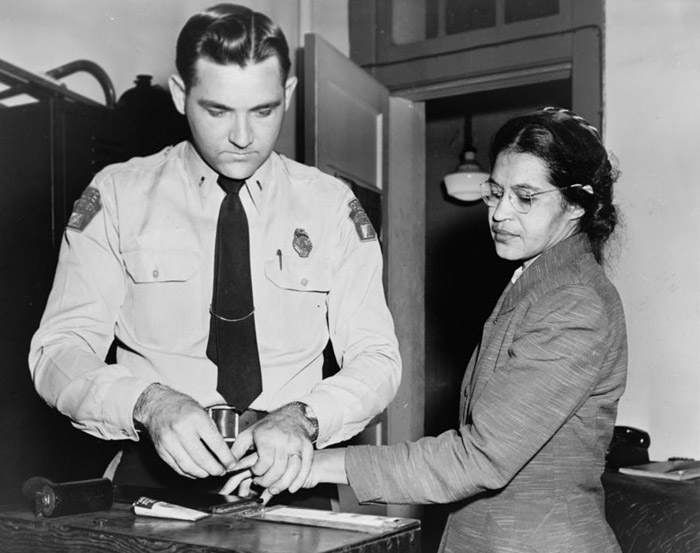
via America’s Story
It took years for me to unlearn what society and my family taught me about my place and role in this world — for me to find my voice and empower myself to stand up for my beliefs. Hence, one of my greatest challenges in AA: I did not get sober to get silenced. For me, not calling out the sexism and misogyny I experienced in AA would be tantamount to being complicit in my own oppression as well as the oppression of others. Yet, there was no room in AA for me to be critical of the program. If I questioned or criticized, I was dismissed as angry and resentful.
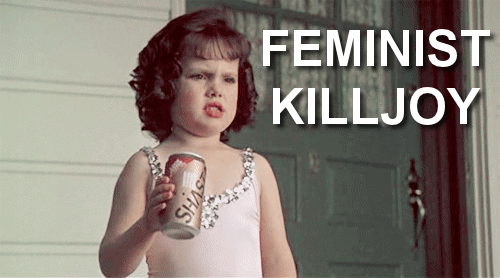
via Jezebel
I had found a real sense of belonging during my first few months in the program. I identified with peoples’ experiences and groups accepted me as one of their own. We all came from different walks of life but had one thing in common: we were addicts and we needed each other’s support to stay sober. Our desire to live transcended all else. I hadn’t felt a sense of kinship like that since I came out and found my roots in the LGBTQ community. As such, I overlooked a lot of troubling things about the program. For example, people were allowed to use whatever language they wanted in their shares provided it was not considered threatening or “cross-talk.” The n-word, the f-word, slut, cunt, bitch – any derogatory slur you could imagine was used in shares to describe others who were not in the meeting, such as ex-wives, current girlfriends, bosses, politicians, family members, neighbors, etc. When people did break the rules and start hurling these insults at other members of the group, corrective action would be decided at business meetings where majority ruled. There were no licensed professional moderators to guide us, to help members process, to assist with mediation, or to facilitate debriefings. I was told by other members that I should pray for transgressors because they were “sick and suffering” and to ignore the negativity by putting “principles before personalities.”
The men in the group, some of whom were violent ex-offenders with anger management problems, would use shockingly misogynist, racist, and homophobic language during their shares and then hit on me before and after the meetings! Vulnerable newcomers would get preyed on by men in wait. When I was new and naïve, I had shared with the group that I had been sexually molested by my stepfather. But, after I started becoming more aware of the dysfunction in the meetings, I regretted that I had shared such an intimate experience in what was sold to me as a safe and spiritual space. In a way, I felt violated all over again and didn’t feel safe at all. So, I used that as an excuse to relapse. (I say excuse because, for an addict, any excuse is a good excuse.) However, I was lucky that I didn’t spiral full speed back into my addiction. I was committed to getting sober despite these obstacles. But, others aren’t so lucky. I, at least, am willing to acknowledge that, for some, this type of setting can in and of itself be triggering and lead to relapse or death. If a person doesn’t thrive in AA, it doesn’t mean it’s their fault.
Any substantive conversation about treatment in this country must reckon with the toll levied when a culture encourages one approach to the exclusion of all others, especially when that culture limits the treatment options for suffering people, ignores advances in understanding addiction, and excludes and even shames the great majority of people who fail in the sanctioned approach. – Dr. Lance Dodes & Zachary Dodes
When I got back on the horse, my sponsor suggested that I start attending women’s meetings. But, even in women’s meetings, we read the fatherly 12-steps that were displayed on the walls of every group I had attended. I would mumble along begrudgingly:
Step Three: Made a decision to turn our will and our lives over to the care of God as we understood Him.
Step Seven: Humbly asked Him to remove our shortcomings.
Step Eight: Sought through prayer and meditation to improve our conscious contact with God, as we understood Him, praying only for knowledge of His will for us and the power to carry that out.
Everything is He, Him, His…
Our language is profoundly biased, related to our social structure, and affects the way we think. We pervasively use male generics and that has negative effects. I do it all the time — I can’t seem to break the “guys” habit. We still use male words, usually to denote positive categories, like “mankind” but female terms for negative ones, “hos,” and “sluts.” – Soraya Chemaly
My sponsor told me to disregard the paternal religious terminology and instead interpret “he/him/his” to mean any God of my liking, even though I was an atheist. Ok, but even still, there was that pesky Big Book that we were constantly reading from, the bedrock of AA. The majority of the 500+ page book — the first book ever handed to me in the program — primarily focuses on the experiences of men and how AA can work by curing their moral failings. Only a few chapters are dedicated to women; some are published in the personal stories section, but the one and only chapter devoted to women in the instructional section is titled, “To Wives.” Let’s delight in some quotes from that chapter:
Try not to condemn your alcoholic husband no matter what he says or does. He is just another very sick, unreasonable person. Treat him, when you can, as though he had pneumonia. When he angers you, remember that he is very ill…
…The first principle of success is that you should never be angry. Even though your husband becomes unbearable and you have to leave him temporarily, you should, if you can, go without rancor. Patience and good temper are most necessary.
Our next thought is that you should never tell him what he must do about his drinking. If he gets the idea that you are a nag or a killjoy, your chance of accomplishing anything useful may be zero. He will use that as an excuse to drink more. He will tell you he is misunderstood. This may lead to lonely evenings for you. He may seek someone else to console him–not always another man.
If a group I was attending was still printing, distributing, and teaching from a book that was blatantly racist or homophobic, I would get up and leave and/or advocate for change. I do not give special passes for misogyny and sexism, especially in my sobriety, because my self-worth is so integral to my complete recovery.
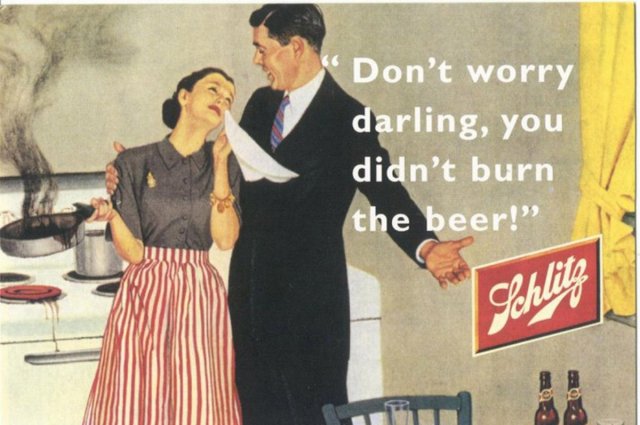
via Business Insider
When I was first motivated to get sober, I had nowhere else to turn except AA. But eventually, I got exhausted of being told that I was resentful, resistant, miserable, and angry every time I challenged AA’s teachings. To begin, no one seemed to understand that a person can be joyous in their personal lives, but simultaneously angry at a system of inequality. I do not believe that anger is always a bad thing. It can be a motivator for change. However, as ilse states in “Why Addiction Recovery Should Be a Feminist Issue,” “[anger] is something that women have not long had permission to feel. In recovery, people are taught that anger leads directly to relapse, and relapse leads to death. Anger is evidence that one has not achieved the spiritual enlightenment required for quality sobriety.”
Moreover, not all criticism is rooted in anger, resentment, and rage. Some of it is rooted in love, and in my case self-love; the love I have for myself to walk away from and/or fight against people, places, and things that contribute to oppression. Ignoring oppression and inequality in any form is a privilege that I, as a QPOC, cannot afford. Unlike some, I didn’t feel that I needed to choose between being sober and being critical of the program. So, I left AA and have been sober (and very happy if you’re curious) for over 5 years now.
There is one piece of literature from AA expressly written for women, a thin brochure titled “A.A. for the Woman.” It contains is a list of reasons why women drink heavily. It asks women: “Do you plan in advance to reward yourself with a little drinking after you’ve worked very hard in the house?” …
…Needless to say, there is no pamphlet “AA for the Man.” Why would that be needed when the Big Book is already all about men? So let me get this straight. Women are supposed to read the AA Big Book because it’s also about them — they’re not unique. But there’s one tiny pamphlet just for women because women are different, albeit it only in trivial, superficial ways. – Juliet Abram
I do acknowledge that AA can work for QPOC atheist feminists. Just as there is more than one way to be a feminist, there is more than one way to get sober. So, then, you might be wondering why I would publicly criticize AA. Someone commented on my last post that I “seem intent on sullying the reputation of an organization that has an inclusive nature and has helped many, many people.” That is far from the truth. I am simply sharing my experiences because others may be struggling with trying to get sober while dealing with AA language and principles that actually impede their recovery. I didn’t know much about AA before I joined and was quite triggered in the program, so much so that I relapsed. I don’t want others to needlessly experience this if there are alternatives. I also want people to know that they do not have to believe that there is something wrong with them if AA isn’t a good fit, because that blame only leads to more shame, guilt, relapsing, and death. I’m letting others who have had similar experiences know that they can leave AA without feeling like a failure and that they can still lead happy, productive, sober lives.
I also want people to consider how AA might impact society on a macro level, considering that studies show that “higher levels of [gender] equality are associated with less alcohol consumption overall.” Researchers are still uncovering the multifactorial biopsychosocial factors that lead to addiction. Before we had access to this new knowledge, addiction was simply dismissed as a moral failing. As a result, clinicians relied on AA as one of the primary means of addiction treatment and it has become accepted truth that AA is the only successful approach to sobriety, despite evidence that research on AA sometimes conflates correlation with causation and the fact that “we hear from the people who do well; we don’t hear from the people who don’t do well.”
AA is such a brand name that most people do not know of other free outpatient treatment options, and inpatient treatment is very expensive. Many people cannot afford fancy rehabs, complete with massages, yoga, counseling, spas, and organic meals. Nor can most people take time off from work for inpatient treatment. Further, our justice system treats addicts like criminals; addicts are often mandated to AA programs as part of their sentencing (aka, coerced attendance, which has been ruled unconstitutional in some cases). Because of these economic and legal factors, some women wind up in AA because they are not given a choice, may not have access to alternatives, or may not be educated about alternatives.
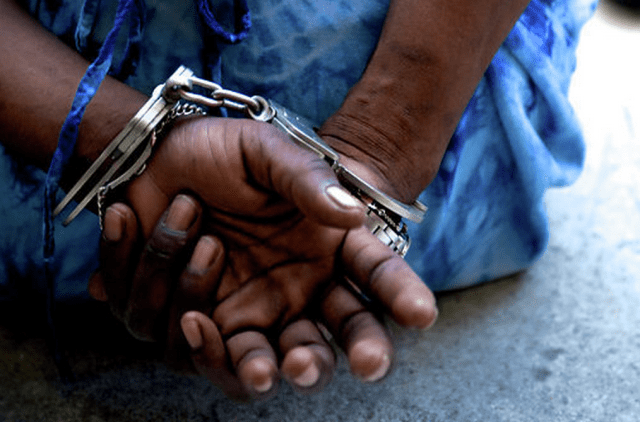
via Pro Talk
There are people who participate in AA even though they find it oppressive and unsafe, and women can be particularly vulnerable given the aforementioned examples of sexism and misogyny. Even though AA has a popular mantra of “take what you need and leave the rest,” people are desperate when they come to AA and willing to go to any length to get and stay sober, including internalize and perpetuate the sexism and misogyny found in AA’s texts. What does it mean for those who cannot or do not want to ignore the dated language in the Big Book, especially when members are told that their lives depend on following the AA doctrine as close as possible? Is there a way to derive all of the positive benefits of AA without propagating the sexism and misogyny? Given that there are an estimated 2.1 million AA members worldwide, how does AA’s sexist and misogynist language impact members’ views of gender, and in turn, how does that play out in the world outside of AA? Do we have to legally mandate people to attend a program that still prints and refers to a sexist and misogynist book? And, lastly, while AA has saved many lives, it has also failed many others. If people leave on their own free will because AA wasn’t a good fit, can we at least stop blaming the addicts for AA’s shortcomings?
Do you or someone you know need help with an alcohol or drug problem? Seeking alternatives to AA? Contact:
Women for Sobriety (WFS): (215) 536-8026 www.womenforsobriety.org
Secular Organizations for Sobriety (S.O.S.): (323) 666-4295 www.sossobriety.org.
Moderation Management (MM): (212)871-0974 www.moderation.org.
SMART Recovery: www.smartrecovery.org n a choice, may not have access to alternatives, or may not be educated about alternatives.
Sober in the City: Wake and Shake with Morning Gloryville’s Sober Raves
Feature Image via Plate Selector
I love to dance. I have always loved to dance for as long as I can remember. When I was a youngin’, I had this very interesting food/dance ritual. During meals, I would take a bite of food, and if I liked it, I would break out in full dance around the table. Bite. Dance. Bite. Dance. Bite. Dance. Repeat. My love for dance continued into my adult life and still continues to this day in my sober life. I may not drink, but I stay out later and dance harder and longer than some of my boozing buddies. And, now I can start my day raving (or continue my night raving, depending on when the party started) with Morning Gloryville, a sober (they explicitly ask that you not show up under the influence) early morning “conscious clubbing experience.”
The party starts at 6:30 am and ends at 10:30 am. If you have to go to work after the festivities, Morning Gloryville provides a “cloak room” where you can store your professional attire. Morning Gloryville also offers:
- wake-up massage stations with expert massage therapists
- more love than you’ll find at your local unicorn ranch
- a superfood smoothie & juice bar
- a high-five (free)
- a coffee kiosk
- an incredible motivating dance team
- NYC’s most talented DJs
- A BANGING DANCE FLOOR
Morning Gloryville was born of co-founder Samantha Moyo‘s frustration with not having enough sober spaces where people could experience intense club energy as their authentic, substance-free selves. But, do not dismiss Morning Gloryville as simply a morning gym workout with a bunch of boring teetotalers. This is a real deal, all out dance experience with a warehouse rave vibe.
Breakfast raving, or “braving,” serves another awesome purpose: “…the point of Morning Gloryville is to break free from the shackles of a soul-sucking morning routine (morning jog, sardine-packed train commute, sipping coffee or tea at your desk) and embrace a more organic, life-affirming experience first-thing.” Morning Gloryville is now in 15 cities worldwide, including San Francisco and New York in the U.S. If you want to bring Morning Gloryville to your city, contact: info@morninggloryville.com
Yep folks, this is how we sober people do!
Sober in the City: An Atheist Walks into AA
Feature Image via Bustle
I’m an atheist, so it’s pretty ironic that my epic celebration of Easter Sunday 2008 is what ultimately landed me in an AA meeting. On that fateful Sunday, my biological mother (I was adopted because she was a crack addict — a shit show of a story that I will save for later) came into the city to take me out for drunk brunch, an activity that seemed to be the only thing we could bond over because being sober while listening to her justify her abusive behavior was soul-crushing. We started off with the usual: bottomless mimosas. This turned into an afternoon of bar hopping. After she went home, my partner and I invited friends over to our apartment and we continued to drink… until around 8am-ISH.
Still drunk as the morning sun crept into my living room, I sent an e-mail to my employer requesting a sick day. (Yes, I was one of those people who came to work with colds and flus because I would use up all of my sick days to sleep off hangovers. Although I guess I was always technically sick, but in a different way.) After hitting send, I stuffed my face with a bunch of food and fell asleep. Hours later, I woke up crying. I had promised myself time and time again that I would quit partying so hard, that I would drink in moderation. And yet, here I was… AGAIN.
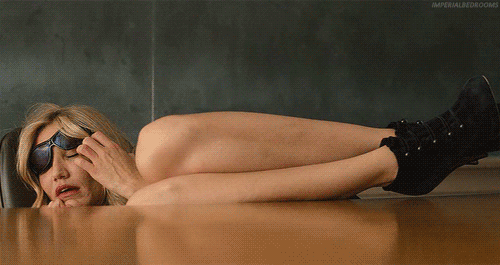
via Rap Genius
For the first time, I admitted I needed help. I picked up the phone and started calling substance abuse treatment centers and organizations. All of them wanted me to make an appointment, bring in my insurance card, and jump through a bunch of hoops. But, I knew that if I waited another day, the lure of vodka and good company would convince me that I in fact did not need the help that I was so desperately seeking in that moment of clarity. Throughout the day, I alternated between making calls, crying, and sleeping, until my quest eventually led me to an organization of volunteers who assist people with finding AA meetings convenient to their schedule and location. The person on the other end of the phone told me to get dressed ASAP and go to a meeting in a nearby neighborhood that would be starting soon.
I was reluctant, but I threw on a pair of pants, some sneakers, and a dirty sweatshirt and headed to the address provided. I was a bit confused when I first arrived. From the outside, the space was dimly lit, almost like a bar. I was such an addict at the time that I thought, hell, if it is a bar and I’m at the wrong place, I’ll just have a drink. But, it wasn’t a bar. It was the coolest AA meeting, nothing like I envisioned AA to be. The members dim the lights to give it a nice, relaxed vibe. Between the lighting and the stories, I was hooked. AA is where I needed to be. I finally found home. Until…
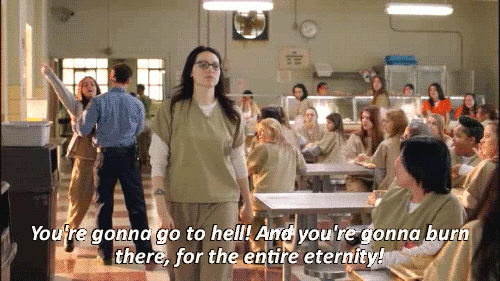
via WiffleGif
After a few weeks, some of the members started asking me if I had a sponsor, if I believed in a “higher power,” and if I was working the 12 steps. I was told that I was focusing too much on the “problem” and not enough on “solution.” They warned me about the perils of becoming a dry drunk: a person who basically engages in the same destructive alcoholic behaviors, only without actually drinking. These behaviors could ruin my life just the same as if I were on the sauce. Furthermore, they said dry drunks ran a greater risk of relapsing, which of course would exacerbate existing problems, or worse, lead to death.
These messages really resonated with me. I did have many character defects I wanted to address. There were behaviors I wanted to change. I was ready to stop the shenanigans and work on solution. But where to start? Therapy? Shall we talk about how my crack addict mother abandoned me, leaving me behind to live with my sexually abusive stepfather until the courts awarded my grandparents custody of me when I was 14? Maybe I should explore the feelings I had about my grandfather also being a raging alcoholic who would rip doors off of hinges when he was wasted? Or my grandmother dying when I was 17 and how, since high school, I supported myself and buried all of this pain as I plowed through college and grad school? Perhaps I might want to examine why I shacked up with another addict who constantly encouraged me to stay wasted? Also helpful might be researching the genetic component of alcoholism and addiction, since it seemed to run in my family?
“No,” the fellowship said! None of this mattered. I could talk about these factors and process in meetings. But, ultimately, I needed to follow the guidelines in the Big Book (the complete text of Alcoholics Anonymous) to the letter, or else I would fail! And, according to the Big Book:
If, when you honestly want to, you find you cannot quit entirely, or if when drinking, you have little control over the amount you take, you are probably alcoholic. If that be the case, you may be suffering from an illness which only a spiritual experience will conquer… Lack of power, that was our dilemma. We had to find a power by which we could live, and it had to be a Power greater than ourselves. Obviously. But where and how were we to find this Power?
Well, that’s exactly what this book is about. Its main object is to enable you to find a Power greater than yourself which will solve your problem. That means we have written a book which we believe to be spiritual as well as moral. And it means, of course, that we are going to talk about God.
…we decided that hereafter in this drama of life, God was going to be our Director. He is the Principal; we are His agents. He is the Father, and we are His children. Most good ideas are simple, and this concept was the keystone of the new and triumphant arch through which we passed to freedom.
Obviously? The only thing obvious to me was the book’s sexism, misogyny, and victim blaming. It didn’t matter that I was molested or grew up in a home where I was exposed to drug use. Nor did it matter that I may have been dealt a bad genetic hand and possibly predisposed to addiction. All that mattered was that, according to the program, I was “spiritually bankrupt” and needed God to set me on the right path.
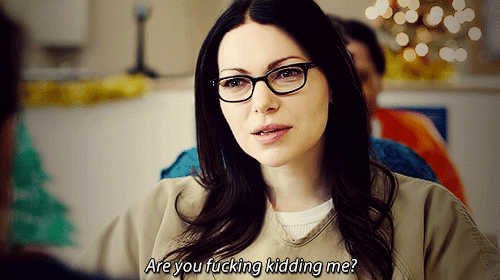
via Fan Pop
So many problems with this, I don’t even know where to begin. I’m going to save the sexism and misogyny for another post and start with the fact that I’m an atheist. Even if I did believe in God, I simply cannot ignore all of the burgeoning scientific explanations of alcoholism that include a number of biopsychosocial factors outside of religiosity or lack thereof. There are plenty of atheists who are not addicts, so being “spiritually bankrupt” could not possibly be the only explanation for my alcoholism. Thus, finding God could not possibly be the only solution.
My skepticism was met with condescending reassurance. Members instructed me to believe in anything greater than myself, and that soon, if open to it, I would eventually believe in God. They advised that I pray to anything, even a radiator (yes, a radiator) and to read the chapter “We Agnostics” in the Big Book, which includes passages such as:
To be doomed to an alcoholic death or to live on a spiritual basis are not always easy alternatives to face. But it isn’t so difficult. About half our original fellowship were of exactly that type. At first some of us tried to avoid the issue, hoping against hope we were not true alcoholics. But after a while we had to face the fact that we must find a spiritual basis of life – or else.
…We needed to ask ourselves but one short question. ‘Do I now believe, or am I even willing to believe that there is a Power greater than myself?’ As soon as a man can say that he does believe, or is willing to believe, we empathetically assure him that he is on his way.
Oh, fantastic! I must submit to a God (they soften the blow by allowing it to be any God) or be doomed to an alcoholic death. It sounded a bit too much like “pray the gay away.” You know, like I was choosing to be an alcoholic, like I chose to be gay, because I was “spiritually bankrupt” and all I needed to do was find God to cure me of all my moral failures. (By the way, I’m not likening homosexuality to alcoholism as Rick Perry does. Being gay is not a bad thing, and it was not ruining my life the way alcohol was. I just do not believe that either are “moral failures” that can be cured by praying to a God that I do not believe in.)
The fellowship said I was thinking too hard about it, that I was stubborn, and that I was not willing to admit that there were forces bigger than me. What they didn’t get was that I did believe there were forces beyond my control, powers bigger than me. Let’s just take gravity as one of many examples. I just don’t believe that praying to gravity or the radiator or the ocean would cure me of my alcoholism. Sure, meditation could be one tool to alleviate stress and perhaps make me a better person. But, to literally turn my will and life over to the care of a radiator until I could find God? Uh, not going to be effective for me!
Some people were really supportive. They would point to a sign on the wall that read “There’s No Right Way to Get Sober,” or share AA slogans like, “Take what you need and leave the rest.” All helpful, until I would be asked to speak at a meeting and members would respond, “I use to be like you. Lost. Godless. But, don’t worry. You’ll ‘get it.'” I became increasingly resentful. And, I was told that my resentment was due to my unwillingness to accept God. It was not feasible to them that, perhaps for some, God isn’t real, alcoholism is real, and that there may be a way of treating addiction without shaming people into believing that there is an omnipotent being invested in our daily drink consumption.
But, here was the problem: Despite all of my issues with AA — sexual predators, verbal abuse, misogyny, sexism, racism, classism, homophobia, and victim blaming — it seemed to be the only thing keeping me sober. So, I’m not writing this to deter anyone from seeking out AA if they feel they need help. Rather, I would like to see more inclusive, progressive versions of AA. As a study published in the Journal of Studies on Alcohol and Drugs concluded:
God belief appears to be relatively unimportant in deriving AA-related benefit, but atheist and agnostic clients are less likely to initiate and sustain AA attendance relative to spiritual and religious clients. This apparent reticence to affiliate with AA ought to be clinically recognized when encouraging AA participation.
I, like many other atheists, stopped regularly attending meetings, with the exception of a few queer-friendly meetings from time to time. Still, I’ve maintained my sobriety for five years and three months to date.
In February 2014, The New York Times ran an article titled, “Alcoholics Anonymous, Without the Religion,” which documented stories of individuals like me seeking alternative versions of traditional AA. Take Glenn’s story, for example:
When he first went to an A.A. meeting 27 years ago, he found himself confronted by religious language and ritual that he considered anathema. Desperate to stop drinking, he tried to fit in. ‘They had this fake-it-till-you-make-it attitude,’ recalled Glenn, 72. ‘This feeling that the religion will catch up with you. It worked in the sense that I got sober. But I got weary of it. It felt mindless.’ After 10 years without alcohol, Glenn ordered a glass of wine and spent the next five years suffering from what he wryly diagnoses now as ‘the merlot flu.’
And Dorothy:
‘A.A. starts at its core with honesty,’ said Dorothy, 39, who heads the steering committee for the We Agnostics and Freethinkers International A.A. Convention.’ And how can you be honest in recovery if you’re not honest in your own beliefs? If you don’t believe in the God they’re praying to, that’s not honest practice.’
Good question, Dorothy! I may just check out one of these meetings. However, not all of us atheist and agnostic queers are so lucky to have such meetings available in our respective cities. And, about that sexist, misogynist Big Book…
Sober in the City: How to Brunch Like a Sober Boss
Hold onto your eggs, we’re getting ready for Autostraddle’s International Brunch Weekend 8/23-24! Find a brunch meetup in your city or create your own by heading over to our events page. You can also load up on all things brunch by watching this space. From playlists to recommendations to personal essays, we’re writing all about the brunch experience. Get excited! BRUNCH.
Ahhh, brunch you old so-and-so. You were once in my top 10, if not top 5, excuses to get wasted when I was an active addict. Brunch is a portmanteau of breakfast and lunch. But I was never brunching for the food. I wanted a reason to drink in the middle of the day. Brunch provides a golden opportunity for people, addicts or not, to get shit-faced and stumble home before dark without judgment.
Often times, when someone gets sober, they come to the realization that their once “favorite” social activities – brunch, karaoke, dancing, dinners, bowling, parades, going to the beach, attending sporting events and concerts, etc. – were all just background noise to the headlining activity: getting fucked up! When recovering addicts participate in these same activities without using substances, they sometimes come to yet another realization: They actually truly dislike some of these activities and/or they much prefer experiencing some these activities sober.
Learning about what your likes and dislikes are when your mind is in an unaltered state is one of the most enlightening experiences. You genuinely find yourself. I realize now that I quite enjoy dancing, but I’m not big fan of some of the nightclubs I once frequented. (What the hell did I ever see in this place?) I still love going to the beach and participating in Pride events. I used to roll my eyes at lavish, cheesy weddings, and now I love observing family dynamics, watching drunken hookups, and doing line dances with complete strangers at receptions. Who knew?
It also turns out that I’m a foodie and love brunching sober because I get to focus and spend more money on the actual food! (Pizza and Oreos are NOT theeeeee best combination of food I’ve eeeeeeever eaten. That was the vodka talking.)
So, with Autostraddle’s International Brunch Weekend approaching (8/23-8/24), I’m going to give you sober queers some pointers on how to brunch like a boss. If you have ideas too, please share them in the comments section. And don’t forget to list your sober brunch events on Autostraddle’s Meet-Up Calendar.
Host Your Own Themed Brunch
Spa brunch complete with cucumber infused water, mini quiches, fresh-mint scented steamed hand-towels, mud masks, eye cooling pads, and aromatherapy? Go for it! Brunch with an Orange Is the New Black inspired menu? Hellz yeah! Tea (not as in political) party brunch that boasts a menu of traditional English teas, finger sandwiches, and puddings? But, of course! A dashing dapper backyard jazz potluck brunch where guests wear bow-ties, pearls, suspenders, twirly skirts, and big hats? Only if you invite me! What I’m trying to get at here is that there are a million and one creative ways to make brunch interesting without the unlimited cheap booze and questionable eggs. You can enjoy the social, not just culinary, aspects of brunching by creating a unique shared experience. When developing your menu, check out these 20 awesome mocktails for drink inspiration. You can ask that your guests refrain from consuming alcohol altogether, have a “sobers only” brunch, or have both alcoholic and non-alcoholic beverage options. Ball is in your court.
Go to a Restaurant Known for Its Food
New York City is a foodie’s dream come true. You can find a multitude of delicious cuisines at every price point. However, before I got sober, I rarely took advantage of New York City’s best brunches because I was always too concerned with making sure that my meal came with an all-you-can-drink option. Yet the all-you-can-drink option is usually only available once a week during brunch hours. Ever wonder why? Well, some very successful chefs and restaurateurs are actually anti-brunch in their own personal lives because they believe that restaurants use brunch as a sham to sell food made with cheap inputs and old food left over from their more profitable Friday and Saturday nights to unsuspecting intoxicated patrons. (Think “seafood frittata.”) So, do your research and go to a restaurant with a good reputation for serving up outstanding brunch meals. Maybe even try a new cuisine. Just keep the focus on eating delicious food, because you’re no longer that person who will eat anything (and think it’s delicious) after a few cocktails. Moreover, if you’re going to brunch with people who drink, check out my Pride post, which offers tips on how to stay sober during Pride, but can also be helpful in many different social situations where alcohol is involved.
Go to a Restaurant Known for Its Entertainment
So, your friends don’t care about the quality of food and insist on experiencing the all-you-can-drink brunch. Now you must decide on whether to go with them or miss out on the fun. If you feel that going to a boozy brunch will trigger you and jeopardize your sobriety, skip the brunch. However, if you’re like me and in a place where being around drunken people is a reminder of why you no longer drink, take your friends to a restaurant that has some form of entertainment. Everyone can have the shared social experience of enjoying a great jazz band, a phenomenal drag queen performance, or even dancing on tabletops at one of NYC’s famed party brunches featuring top DJs. The entertainment will certainly be more interesting and less triggering than listening to your wasted friends complain about their consistently horrible OK Cupid dates and bad bosses and the half-baked, substance-fueled ideas they have to address these problems.
Dress the Part
While a fair number of brunchers will be dragging themselves hungover from the night before in sweatpants and shades to the pub so they can get a bit of the “hair of the dog,” you, my sober friend, will be bright-eyed, rested, and have a well-hydrated glow. Now’s the time to show off your sartorial smarts and be that head-turning queer at the table. For outfit inspiration, I highly recommend Tomboy Femme, dapperQ, Qwear, and Fit for a Femme.
Now, go forth sober queer and brunch like a boss!
Feature Image via Daily Mail
Sober in the City: The Life-Changing Day My Addict Partner Left Me
January 7, 2009 was one of the best days of my entire life. However, at the time, I didn’t actually realize this. In fact, on that very specific day, I felt like my world had been shattered and that I was experiencing one of the worst days ever. The events that transpired on that day would set me on a different path, one that would lead to greater happiness, freedom, self-esteem, and success. But it took some time for this truth to become crystal clear to me.
Around noon, I had just finished lugging my suitcases up to my NYC apartment after a short vacation to the Bahamas. So far, so good, right? The purpose of my trip was twofold. First, I had just celebrated seven months of sobriety and I used the money that I would have otherwise spent on drinking and partying (YES, I partied that hard) to treat myself and my partner of 12 years to a beach vacation away from all of the cold, slushy NYC weather. Second, my partner and I had been fighting as per usual and my hope was that we would rekindle some sort of spark over romantic dinners and snuggling in the sand.
The second goal of the trip was a complete and utter failure. We continued to fight the entire vacation, even as we parked our sandy suitcases in the living room upon returning from what should have been a relaxing experience. At one point during our fight that evening, she excused herself and said she was going to pick up our apartment keys from the pet sitter who lived down the street. She never came home. EVER! Yep folks, I’m not exaggerating. After 12 years, I legit got dumped by the old “I’m going out for a pack of cigarettes (never to return)” routine.
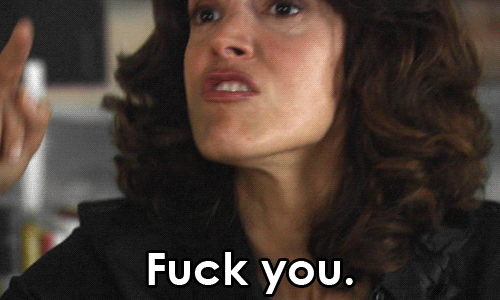
via WiffleGif
I was blindsided. I never saw it coming. But, a complete stranger, who I will refer to as Bill, had predicted the breakup months before it happened. A few weeks into my sobriety, I had attended a sober event. I met Bill at the gathering and he was giving me advice on how to stay sober and suggested that I not make any major life changes during my first year of recovery. This included starting new relationships or ending existing ones, unless, in the case of the latter, my safety was at risk. I assured Bill that dating wouldn’t be a problem because I was practically married for over a decade. He then asked me if my partner was also an addict. I stated that she was, but that she was not interested in getting sober. In response he gave me “the face” — you know, that one of pure judgment. Bill was very concerned about the stability of my home life.
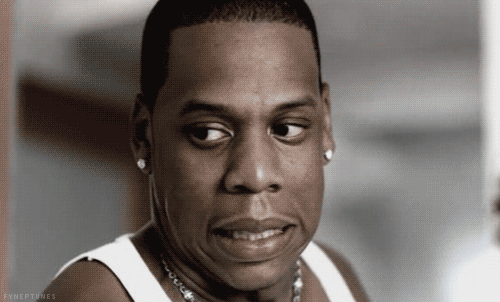
via Hello Beautiful
I was quick to defend my relationship. After all, I had no intention of dumping her. Matter of fact, my sobriety was going to make me a better person in all aspects of my life, including in my relationships, right? Bill then said something along the lines of “I’m not concerned that you’ll leave her. I’m concerned that she’ll leave you. Sometimes, the one who gets sober is the one who gets dumped.”
Her, leave me? Why would she do that? I was the one getting sober, starting all of the hard and painstaking work towards recovery and she was getting a free pass to continue her wild child antics. In fact, once I got sober, she became obsessed that I was going to leave her. I constantly reassured her that I was going to stay and try to make the relationship work. On my end, even though I knew how dysfunctional and codependent our relationship was, she had me convinced that I was not worthy of being loved and that no one else would put up with me. So, it appeared that neither of us was going anywhere.
For 12 years, we were like some horribly tragic combination of Lindsay + Samantha, Bobby + Whitney, Kurt + Courtney, and Amy + Blake. I’m not even making this comparison for some snarky Jezebel comedic effect or to be disrespectful. We were legitimately on a downward spiral with substances that could have ended in jail time, disability, and/or death for one or both of us. I knew that I would lose some of my fair-weather party friends when I got sober. But, her? We’d been through so much, why the fuck would she leave now given the shit show that was our relationship when we were both drinking and partying? Even just one of us getting sober should have given the relationship some hope to improve and survive.
But, that’s the thing about dysfunctional codependent relationships. All parties involved play a very specific role in order to keep the chaos going: rescuer, victim, scapegoat, martyr, enabler, etc. When one person steps out of their role, it disrupts the entire order of things. Who will blame, who will fix, and who will control when roles are shifted? Over the course of our relationship, we had created the perfect foundation to perpetuate asshole active addict behavior. She did ABC, I did XYZ to retaliate…and she did ABC in response to that…and I did XYZ because I was tired of her still doing ABC…and round and round we went all with addiction acting as the glue to our fractured, maddening relationship.
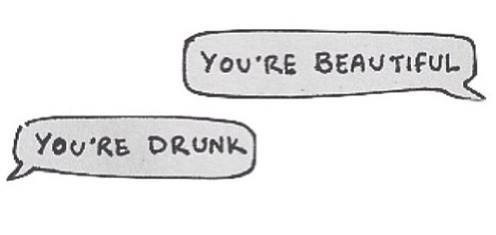
via We Heart It
My sobriety was too real. It served as a mirror, reflecting all of the drunken, stumbling, irresponsible, disrespectful, childish behavior of those who were still using around me, including my partner and some of my so-called best friends. On one hand, she said she fully supported my path to recovery, but in the same breath she would ask me provoking questions like “When is fun Ginger going to come back?” in response to me choosing not to drink. She would express that she was fearful of me leaving her because I joined AA, but simultaneously kept participating in her predictable addict behavior of inviting people over to our apartment to party, spill wine all over the carpet, snort, smoke, etc. when I was at AA meetings. When I would return from my meeting and walk into a cloudy room full of her and our dazed out friends, everyone would look at me as if I were the problem. Mind you, I was coming home from participating in an activity that was literally saving my life, yet I was the pariah. Strangely, no one cared when I was drinking and would stumble home intoxicated, turn on the stove to make drunk treats, and pass out with the gas on.
Some of our “friends” would encourage me to start drinking again, just in smaller amounts. Others were embarrassed to take me to parties because I didn’t drink. And, still others said they felt sorry for me because I could no longer partake. One even went as far as to try to convince my partner that I had joined a cult (AA). But every single last one of these people thought I was a blast, a real good time gal, when I was destroying my health, my potential, and my relationships. Looking back, my partner and our circle of addict friends all fancied themselves as being something comparable to the cast of The Wolf of Wall Street and my sobriety was sinking their party yacht! I was dead weight that needed to be dropped. My partner was the first to go, and the rest disappeared when I needed them to support me in getting better, instead of getting worse.
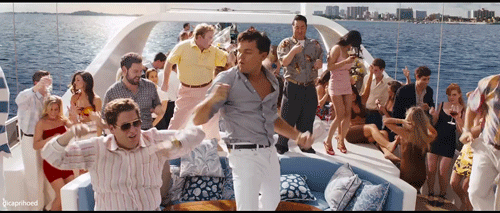
via Giphy
I started to resent AA and my recovery. I felt that getting sober was robbing me of everything that had ever meant anything to me. My partner. My friends. My social life. And, of course, the thing that meant the most to me: my buzz — my way of checking out of how bad I had made my own life. So, I did what any good addict would do. I relapsed. Uh huh! I rationalized that my life was going to be shitty whether I was sober or fucked up, so might as well get crunk!
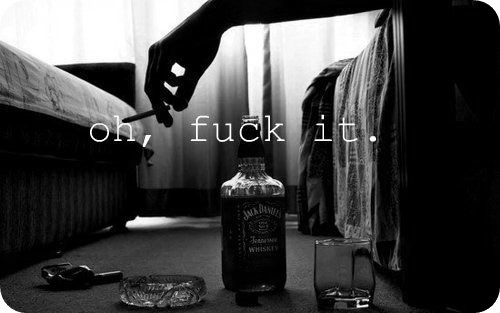
via We Heart It
Relapses are a slippery slope. Some people relapse and never get sober again. These people may learn to control their drinking; they may end up being lifetime chronic alcoholics; they may lose their jobs, their families, and their friends; they may end up destitute, homeless, and/or incarcerated; or, they may die. Others relapse, learn something from their relapse(s), and get back on the road to recovery. I was one of the lucky ones and got sober again. Today, with a little over five years of sobriety under my belt, I carry with me knowledge that I gained from that last relapse. Drinking did not make my pain or problems go away, it only made them worse. It took me getting back on the wagon to realize that my recovery had been working just as it should have been and that my life had been in fact getting better, whether I was aware of it at the time or not. The death of those destructive relationships that I once held so dear was integral to me pursuing and achieving positive goals; developing new and strengthening existing healthy friendships; finding functional, true love; and experiencing happiness with an unaltered mind. I know now that no one who truly cares for me would wish something upon me that would cause my demise. And, for all of this knowledge, recovery, love, and happiness I’ve gained, January 7, 2009 was indeed one of the best days of my life!
Feature image via Auto Focus
Sober in the City: 20 Summer Mocktail Recipes to Try Now
I was a bit out of sorts when I first got sober: anxious, stressed, angry, depressed. Everything bothered me, and living in NYC didn’t help the situation. One of my good friends would patiently listen to me complain non-stop about any and everything. Until one day she had just had it with me. I was going on and on about how it was just so unfair that I would never be able to drink again, until she snapped at me and said, “You will be able to drink LOTS of things! Just. Not. Alcohol! Have some water. People would kill for some!” Addiction is far more complex than swapping out water for alcohol. But, for me, at least, it is helpful to have friends who won’t, as they say in AA, “co-sign my bullshit” and provide support in redirecting my obsessive thoughts.

via e-Baum’s World
Five years later, I see the world through a whole new set of eyes. There are so many things that are overwhelmingly incredible to experience without being numb. Even the act of slowly sipping a mocktail made from Earth’s ingredients — ingredients that I am so lucky to even have access to — is something that I do not take for granted. With summer here, I do not have to forgo the act of social drinking. But, I can forgo the hangover, the shame, the guilt, and the regret. Here are 20 summer mocktail recipes to try now, sober or not. Sit with them. Taste the combination of ingredients without the mask of alcohol, and be grateful for every berry, herb, flower, vegetable. And, if you don’t have the patience to make these recipes at home, grab your friends and go out for mocktail hour. (The New York Times and Refinery29 have great roundups of places to grab the best mocktails in New York and San Francisco, respectively. But, you can always just go to your local speakeasy or hotel bar and challenge the mixologist/bartender to make you something creative sans the alcohol.)
1. Blackberry Lavender Lemonade
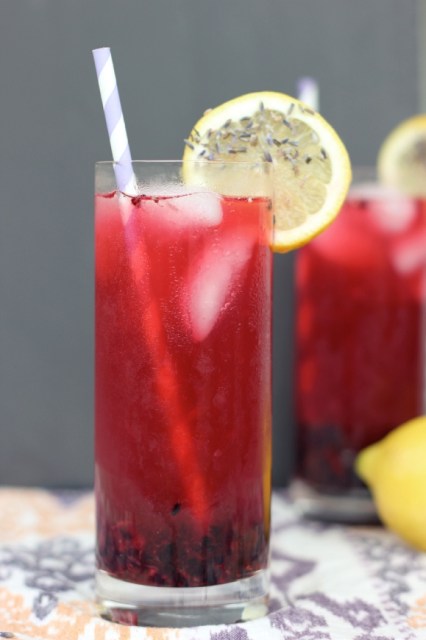
via Free People
2. Rosemary Citrus Spritzer
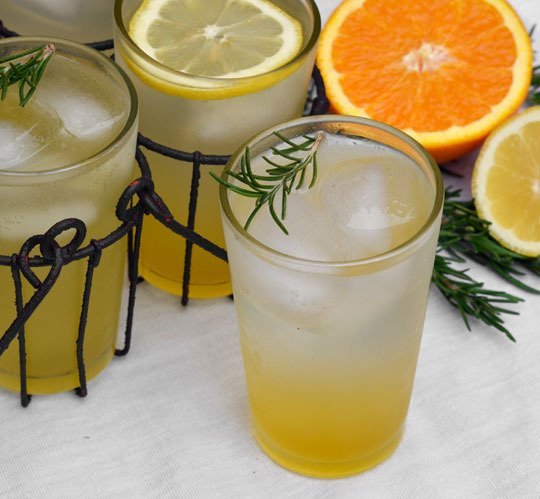
via the ktchn
3. Meyer Lemon Soda
4. Virgin Garden Mary
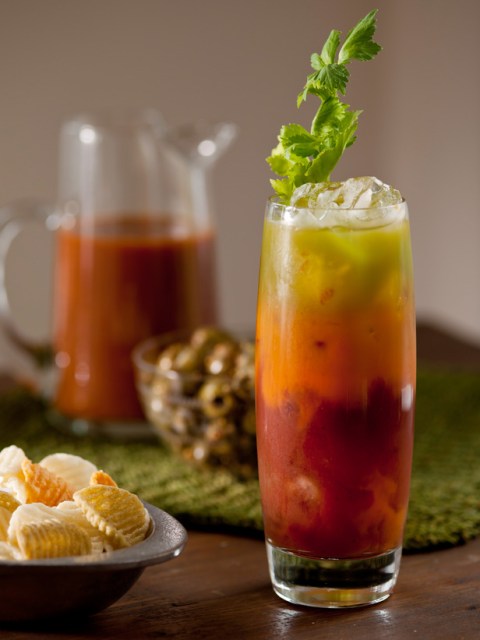
via HGTV
5. Kiwi Lime Mojito
6. Italian Cream Soda
7. Kumquat Pink Pepper Spritzer
8. Cucumber Lemonade
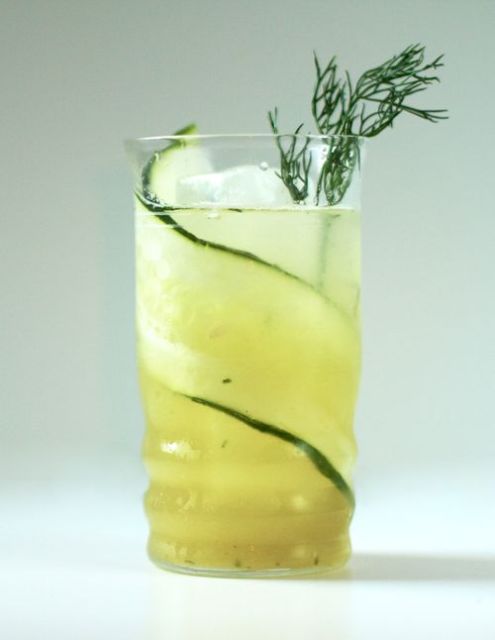
via The Bitten Word
9. Passion Thyme Mocktail
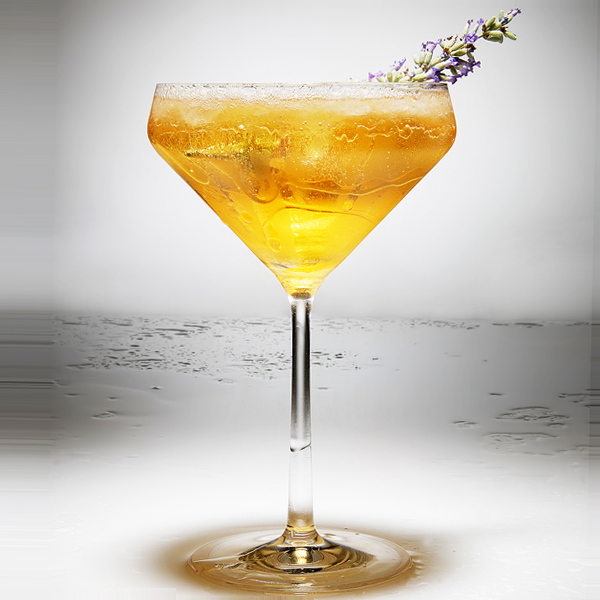
via Fit Pregnancy
10. Strawberry Lychee Soda
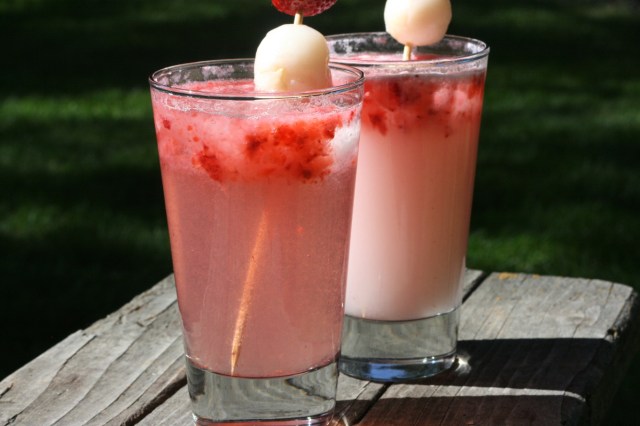
via The Gastro Guy
11. Ginger Lime Mocktail
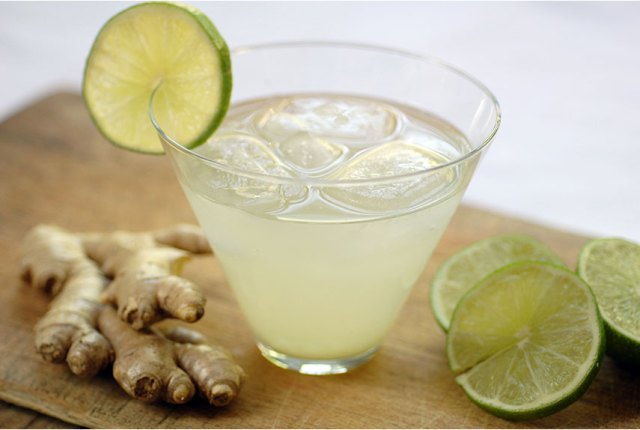
via elena’s pantry
12. Frost Bite Mocktail
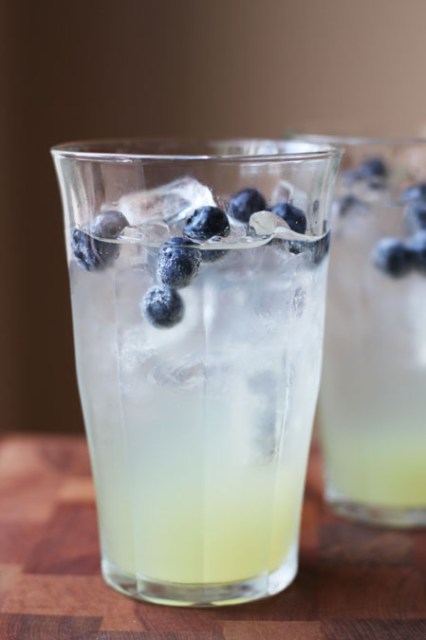
via babble
13. Blood Orange Spritzer
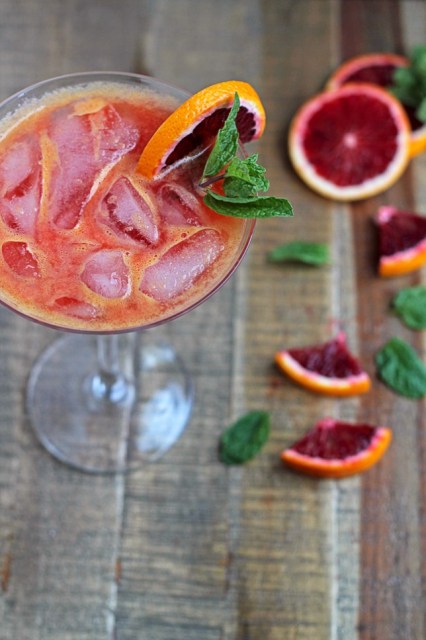
via Brit + Co
14. Saffron Orangeade

via Martha Stewart
15. Cranberry Rosemary Tangerine Mocktail
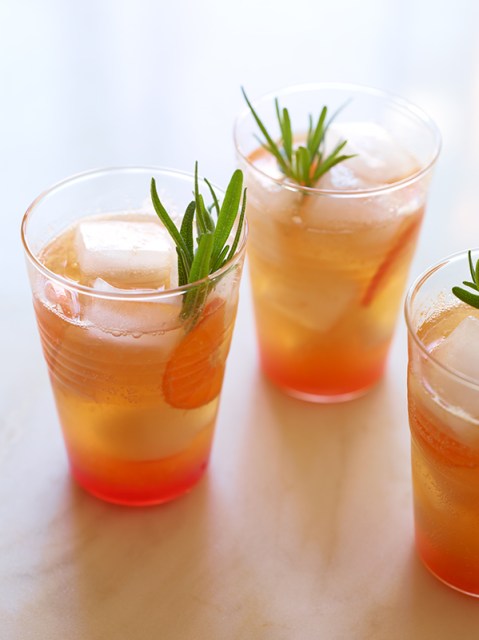
via The Juice Stand
16. Pomegranate Rosewater Spritzer
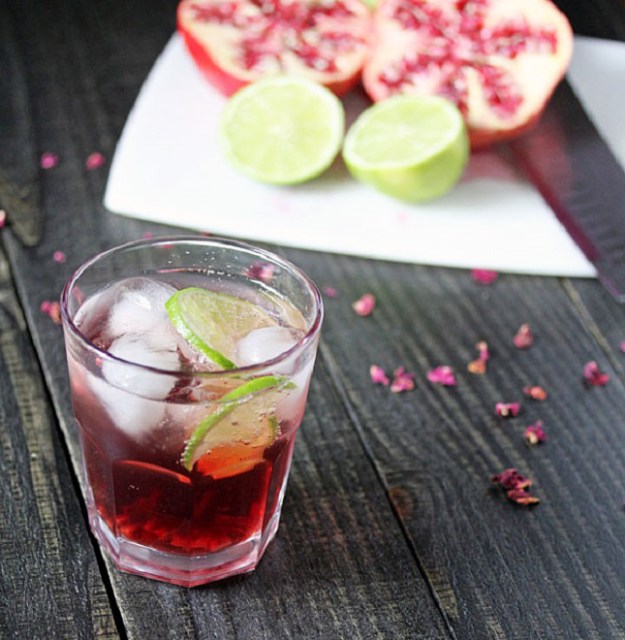
via Brit + Co
17. Basil-ade
18. Pink Lemonade Coco Float
19. Pricky Pear Mojito
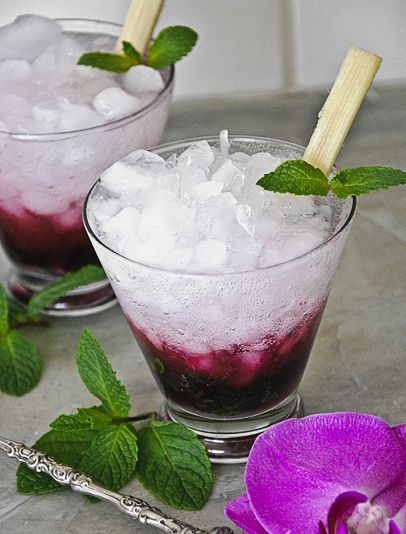
via My Man’s Belly
20. Berry Super Food Mocktail
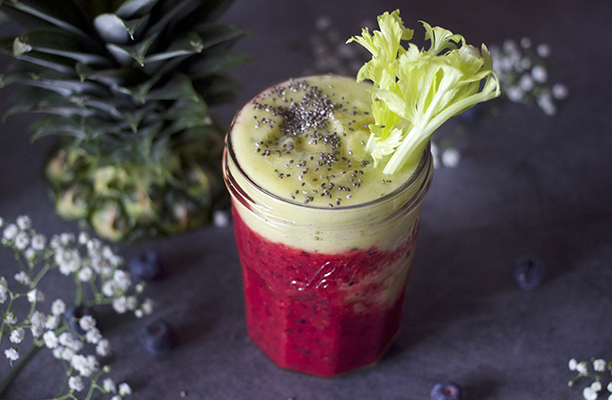
via Nouvelle
Sober in the City: Surviving Pride Without Liquor
Feature Image via The New York Times
In a previous post, I talked a bit about my experience with redefining my queerness in sobriety. Changing my relationship with Pride was one of the first and hardest things I had to do as a sober queer. I currently have five years of sobriety and I plan on celebrating Pride in New York City dancing, singing, marching, and rejoicing all things LGBTQ… and doing it sober for the fifth consecutive year! However, getting to a place where I could enjoy Pride in sobriety was certainly a challenge; especially considering I spent my heavy drinking years (10 to be exact) at Pride face down in a bottle of vodka.
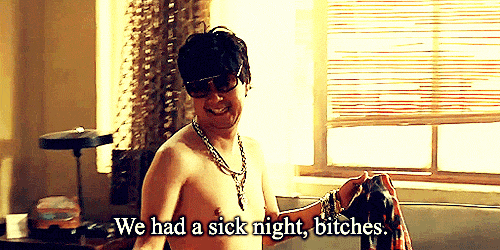
via Gify
Confession: I could have been celebrating six years of sobriety this year. However, I relapsed three times during the first year that I attempted to get sober. One of those relapses happened the night before the 2008 NYC Pride parade. Good lawd, I remember it like it was yesterday. I did absolutely NOTHING that my sponsor told me to do in order to prepare for Pride full well knowing that Pride is like gay St. Paddy’s Day when it comes to alcohol and drug consumption. With only 50-something days of sobriety under my belt, I thought I’d wing it. I took some heavy drinking friends visiting from out of town to a bar. After white-knuckling it for a few hours, I downed a glass of Champagne with them because I couldn’t stand being the teetotaler in a room full of insane partying. That glass of bubbly turned into a full on bender. I recall leaving a nightclub at 8am with a DJ and my friends (I couldn’t believe the sun was out) and we all continued drinking at my place. When my friends left at 11am, I stood in my living room alone and mortified. I reeked of alcohol and cigarettes. I was sick to my stomach. I spent an obscene amount of money. (Well, obscene for my income bracket.) And, I had to make a number of embarrassing phone calls, including one to let my sober friends know that I was too hung-over to march with them in the parade and another to my sponsor to let her know that I had relapsed… again. Instead of attending the parade, I spent the day in bed alternating between crying, vomiting, and sleeping.
I really was committed to getting sober and never wanted to experience hangovers and drunken shame again. But, I was in a jam: I loved Pride and still wanted to be a part of it, however, I was afraid I could no longer enjoy the festivities anymore if I were sober. Over the years, I had convinced myself that my mind needed to be in an altered state in order to share in the spirit of the day with my fellow queers. I had to ask a hard question: Do I really have to ban myself from Pride in order to stay sober? The answer for me was “no.” While some people struggling to get and stay sober do in fact have to avoid Pride because it is too much of a trigger, others, such as myself, can find ways of changing their perspective and learn to love things about Pride other than getting f*cked up. In fact, attending Pride sober over the years has made me even more proud, more engaged, because Pride is not about getting wasted and often times the real meaning and purpose of coming together as a community is overshadowed by the debauchery (No judgment. The debauchery is fun.)
Here are some tools I employ to protect my sobriety while still allowing me to participate in all of the fun. If you’re concerned about being a sober queer at Pride this year, some of these tools may come in handy:
Pregame at a meeting
Before you head to any Pride event, attend an AA, harm-reduction, or other supportive meeting and get some love and wisdom from your sober family. Sharing at a meeting, or even just listening to what your peers have to say, can remind you of why your sobriety is important and provide you with the fierceness you need to be of service to yourself and others.
Bring a sober friend
Remember your “friend” who would hold your hair back while you threw up? Well, your sober friend will one up that by helping you avoid needing to have your hair held back as you hug a bowl full of E. coli in the first place. And, your sober friend will be on the same plane as you, so you can have meaningful shared experiences that no one who is drinking can 100% relate to. These experiences are important if one of the reasons why you drink is to feel included. You and your sober friend(s) will have your own inside jokes, your own exclusive club.
Always have a (non-alcoholic) drank
Sometimes other people are more uncomfortable about you not drinking than you actually are, a phenomenon that Megan Knash talks about in her article, “My not drinking bothers friends.” Knash states,
“I couldn’t figure out why the roommate kept bringing up my dryness that evening, but I suspect the threat of having a non-drinker in the midst is that, when folks are drinking together, everyone — except the abstainer — is going somewhere. Together. On a journey. Booze softens the edges. It massages the ache of unspoken words. It dissolves the perceived boundaries among people. When you’re sober, especially if you want to stay that way, you have to be at peace with where you are. You have to believe you’re already where you need to be.”
One way that I get people off my case about not drinking is to always have my favorite non-alcoholic drink in my hand. This makes people, who always just assume that there’s alcohol in my cup, think that I’m getting drunk with them, which is hilarious because I get to watch their drunken madness unfold.
Holding onto a drink also gives me something to do with my hands. Addicts are very ritualistic. A martini glass was my go-to ritualistic paraphernalia, so I’ll ask the bartender to pour me a cran-pineapple-seltzer in fancy stemware.
Rehearse your excuse
If you’re not out as sober, make sure you have a good excuse about why you’re not drinking for the members of the drink patrol. You know, the ones that chase you around trying to get you to take shots with them and forcing drinks down everyone’s throats all night. I usually use the “I’m on powerful antibiotics and I’ve been drinking cran-pineapple-seltzer all night” excuse.
Know your HALT
HALT stands for Hungry, Angry, Lonely, Tired. Any three of these can trigger a relapse. So, if one minute you’re fine and the next you’re feeling like you can just down a fifth, remember to check in with yourself and assess if you need to phone a sober friend, take a nap, or just get something to eat. When in HALT, sometimes an iced coffee works for me because I find that I get a bit tense when I’m under-caffeinated. But, be careful – caffeine can also trigger a relapse for some.
via Gify
Wake up, flawless. Post up, flawless. Ridin’ round in it, flawless. Flossin’ on that, flawless.
Nails did? Weave right? Brand new bow tie? Fresh scent? Check! Pamper yourself. Step up on some next level shit. When I walk out of the house knowing I look fly, I exude confidence. And, one of the major reasons why I drank in the first place is that I lacked confidence. Add it up. Besides, I always love ending the night looking as fresh as when I started it, instead of having a crooked eye, running mascara, and broken heels. #iwokeuplikethis

via Global Grind
Play the tape
There is a reason why you got sober. Don’t forget it by romanticizing how amazing Pride will be if you just had a few drinks. Instead of simply thinking about immediate gratification, “play the tape” until the end. Where is that one drink going to take you? Will your movie end as an uplifting story of triumph or as a horror flick with mass carnage?
Have an exit strategy
Ok, shit just got weird because you want to drink, if you stay a minute longer you will drink, you’ve stopped talking, and now you just gotta GO! But, if you run away like a bat outta hell, your friends are going to wonder, “WTF?” Someone might convince you to come back and that may result in you drinking. Or, you just may create a lot of angry, awkward, and embarrassing feelings by ditching your friends without cause. Please, have a game plan my friend. Think of an exit strategy that can quickly get you out of any situation without things getting all Twilight Zone. Sometimes, out of nowhere, I will suddenly remember that I left my curling iron on. Shit burns down in NYC. BRB. TTLY.
Remember why you’re celebrating
“Heritage of Pride hosts New York City’s Pride events in commemoration of the Stonewall Riots of 1969, the beginning of the modern Gay Rights movement. Heritage of Pride works toward a future without discrimination where all people have equal rights under the law. We do this by producing LGBT Pride events that inspire, educate, commemorate and celebrate our diverse community.” There it is. That’s the mission of NYC Pride, which I am sure is similar to the missions of other Pride events all across the world. That’s the point. Nowhere in that mission statement does it say the purpose of Pride is to get wasted. We addicts can make lots of excuses to get f*cked up. Really think about whether you’re using Pride as just another excuse.
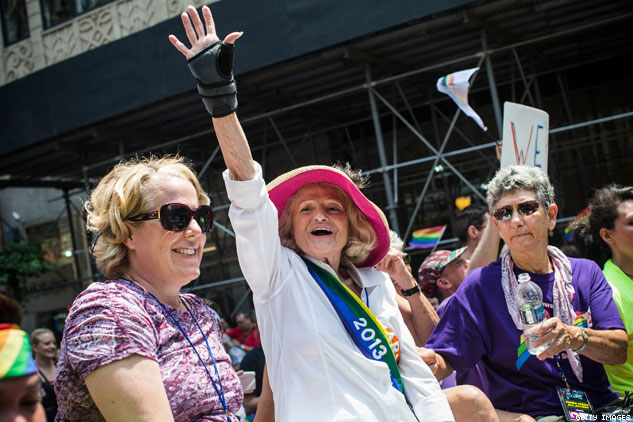
via The Advocate
Get involved
There are many ways to advance the actual goals of Pride in your area. Look for opportunities to volunteer, march, rally, organize, support LGBTQ artists and activist, and engage with the community in a healthy, positive manner. In fact, you don’t need to be sober to do this. Use Pride to be the change you want to see!
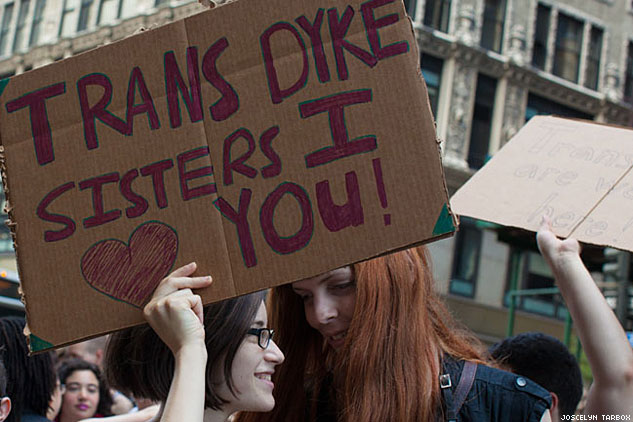
via The Advocate
Sober in the City: Redefining My Queerness On Fire Island
Feature Image via Forbes
I’ve been queer in New York City for 15 years, and sober for the last five of those years. However, long before I jumped in a U-Haul and planted my baby dyke roots in the Big Apple, I was born, raised, and spent a good portion of my life in Any City, USA. I stayed in my hometown for undergrad and came out during college. Like many Any City, USAs across the country, my hometown, at the time when I resided there, had little to offer in the queer culture department. Other than my college’s small LGBTQ student group, which had less than 10 regular participants, there was not a single LGBTQ-specific community center, sex shop, health center, coffee shop, or museum in the entire state. But, my city was home to the state’s only gay nightclub.
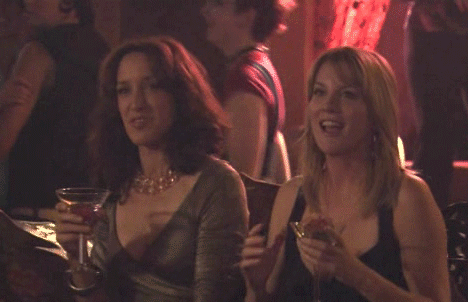
via Fan Pop
I remember the first time I frequented that nightclub. I was so nervous standing outside in line. However, once I got in, I felt like I was home, like I was free to be my true self for the very first time. No hiding. No shame. There were gay men openly grinding and making out. People were dancing and singing along to disco classics. A gorgeous butch go-go dancer who looked like a young K.D. Lang swiveled her hips on top of the bar wearing nothing but a tight pair of white men’s underwear and a tank top that had been cut off to a length that barley covered her nipples. An all-drag-queen punk rock group hailing from NYC stormed the club’s tiny stage and belted out a midnight performance of “Killing in the Name” by Rage Against the Machine. When they sang the song’s lyrics, “F*ck You, I Won’t Do What You Tell Me,” the audience pumped fists in the air and yelled back, “F*ck You, I Won’t Do What You Tell Me!” I was alive! That night, my queer identity was born in a bar.
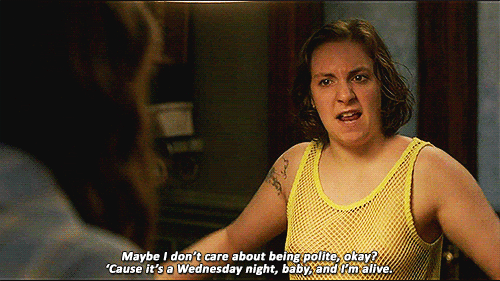
via Wiffle
I became a regular at the club and my drinking started to slowly increase. At that time, my drinking probably still could have been defined as binge drinking. But, when I binged… OH BOY, did I binge! And, after I moved to NYC, those weekend binges turned into drinking 5-7 nights a week. I came from meager beginnings, put myself through college and graduate school, held a good job, had great friends, and scored a decent NYC apartment. So, it took me some time to realize that drinking 5-7 nights a week was a problem. After all, I seemed to have it together and my friends, who were partying along with me, were more than functional — they were successful.
I was just doing what they were doing. And, we all were doing what (it seemed like) everyone else in NYC was doing. Even the women on Sex and the City (my generation’s Girls) were living the fabulous single life, going out somewhere amazing every night and guzzling Cosmos by the barrel. (By the way, Kristin Davis, aka Charlotte, is actually sober and proud.) If the straights were doing it, well then, we were not to be outdone because we were not normative; we were rebels!
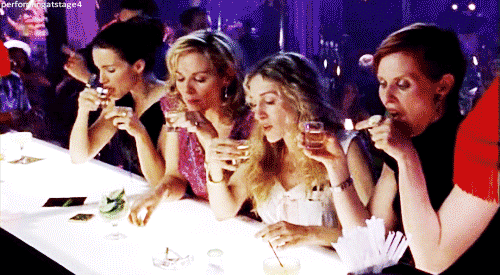
via HuffPo TV
The reality was that I had become another queer substance abuse statistic and there was nothing fabulous about my life. Or, at least everything that was fabulous about my life was being drowned in alcohol. I know what some of you are probably thinking: The bar scene is important to queer culture and it’s a shame that I had to abuse it, had to take it too far, right? And, I agree. The bar scene is very important to queer culture and, in my case, I had some biopsychosocial odds stacked against me that predisposed me to addiction.
But, one of those factors is being queer. According to the Pride Institute, “research suggests that alcohol abuse and dependence occurs at even higher rates [in the LGBT community] than in the mainstream population. Independent studies collectively support the estimate that alcohol abuse occurs in the LGBT community at rates up to three times that in the mainstream population. Said another way, alcohol abuse is estimated to occur in up to 45% of those in the LGBT community.” Although research has primarily focused on substance abuse among gay men, some studies reveal that lesbians and bisexual women also report higher rates of illicit drug use and heavy drinking than their heterosexual counterparts.
There are a number of factors that contribute to these higher rates, including, but not limited to, discrimination, stress, and lack of support networks. However, one factor that is often the rainbow elephant in the room is the LGBTQ community’s reliance on bars to socialize. Many LGBTQ individuals reside in areas, like my home state, where there are few opportunities to socialize with other members of the community except in bars. The Substance Abuse and Mental Health Services Administration states, “Legal prohibitions against LGBT behavior and discrimination have limited LGBT people’s social outlets to bars, private homes, or clubs where alcohol and drugs often play a prominent role.” Further, The Center for American Progress points out, “targeted marketing efforts by alcohol and tobacco companies exploit the connection many gay and transgender people have to bars and clubs as safe spaces for socializing and increase easy access to tobacco products and alcohol.”
NYC provided me with more opportunities to explore my queer identity outside of bars, but by the time I had moved here, my definition of what it meant to be queer was already skewed, rooted in the notion that being queer and being blasted and fabulous were inseparable. Besides, NYC also provided even MORE venues at which to get wasted. There were so many bars, nightclubs, and parties to attend. Every night was a wonderland that was not previously available to me back home. And, even if my friends and I were going to do something outside of a bar, like go to a gay beach, gay BBQ, or gay museum, those activities were usually preceded by a fair amount of “pre-gaming” and followed by another fair amount of “post-gaming,” because that’s what badass homos do.
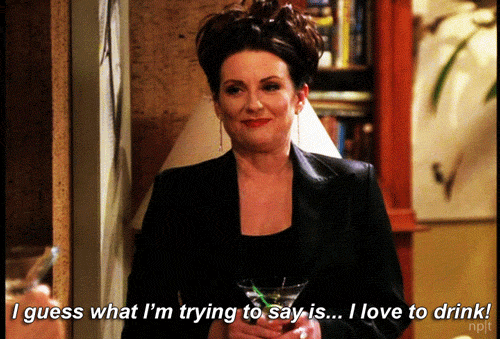
via Rebloggy
A decade later, I found myself occupying a seat in AA. I made wonderful friends in the program, both gay and straight, and we all struggled at some point with redefining ourselves, with finding out who we truly are. Other than partying, what did we like, what were we good at, what defined us? One area that many LGBTQ individuals, including myself, struggled with was redefining what it meant to be queer. I always felt that my queerness was integral to how I define myself in general. But, if being queer was synonymous with getting drunk, then how would I ever be able to define myself as anything other than a drunk? Was I going to have to focus less on being queer? And, if that was the case, how could I do that in a world where I am constantly reminded that I am the “other?” Also, why was my queerness so hard to define when my regional, racial, national, and generational uniqueness seemed so evident and easier to incorporate in the healthier new me?
About one year into my sobriety, I went on a day trip to Fire Island, a stunningly beautiful gay beach community in New York that is also notorious for its all day and all night parties. All of my previous experiences of Fire Island involved getting obliterated (imagine that), so I was particularly bitter about this trip. How in the world could Fire Island be fun without booze? Yeah, the beach was spectacular, but then what? I was going to be the teetotaler while everyone else sipped on vodka by the pool and twirled around fabulously to Yonce and other divas.
Before the first wave of evening parties commenced, I excused myself to attend an AA meeting on the island. I was dragging my feet all the way there.
I entered the room and was surprised to see over 100 drop-dead gorgeous queers, tanned, in their summer gear, sipping iced-coffee, laughing, smiling, greeting each other with hugs, showing mad community love. WHAT? I thought there was going to be 3 washed-up, sad faced ex-delinquents there, and instead it was a gathering of fierceness and support that is usually only seen once a year during Pride. People were nice. They came up and introduced themselves, offered phone numbers, and shared their experience, strength, and hope. They even informed me that there was a recurring women’s seaside meeting on the beach that I should check out. All of a sudden, I felt as exhilarated and reborn as the first time I entered that gay bar in my hometown.
And, it got better. When I went to some of the parties later that evening, I saw some of the folks from the AA meeting shaking it on the dance floor like everyone else. We gave each other a nod, like we belonged to some secret gay sober association. (Because we did!) I was doing everything I had always done back home, in NYC, and now in Fire Island. I just didn’t have a glass of alcohol in my hand. (I had a virgin drink, and no one was the wiser.) I was present. I was kind. My words weren’t slurred. I stayed out later, harder, better, faster, stronger. My wallet was fat with money that I hadn’t spent on liquor. I even remembered every last minute of my night the next day. No blackouts. No regrets. Heck yeah, I was queer! And, I couldn’t wait to explore more of what that meant in every aspect of my life, from the office to the bedroom. Turns out that there is queer life beyond the bottle, and it’s fabulous!
